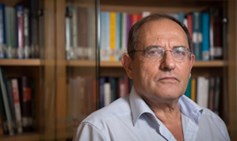

Publications Regarding Rule of Law
Articles

Should the Court Manage the Draft of the Ultra-Orthodox?
Written By: Prof. Amichai Cohen
The government’s refusal to formulate an enforcement plan for drafting ultra-Orthodox men, in defiance of a ruling by the High Court of Justice, places Israel before an unprecedented crisis. The Court faces only bad options—but it may have no choice other than to step into the shoes of the executive branch and move toward active enforcement.

The Sde Teiman Crisis and the Assault on Israel’s Rule of Law
Written By: Prof. Amichai Cohen, Prof. Yuval Shany
The court’s ruling about who can oversee an obstruction of justice investigation into military officials has broad rule-of-law implications.

Israel's government-appointed October 7 probe is no substitute for independent inquiry - opinion
Written By: Dr. Dana Blander
The Israeli government’s decision to establish its own committee to investigate the failures on October 7 is not enough.

Evaluating the ICJ’s UNRWA Advisory Opinion
Written By: Prof. Yuval Shany, Prof. Amichai Cohen
The opinion is correct that Israel violated international law by cutting ties with UNRWA, but some broader observations are questionable.

What's A Commission of Inquiry? Explainer
Written By: Dr. Dana Blander
The Israeli government recently announced its intention to establish its own commission of inquiry into the events of October 7, 2023, rather than forming a State Commission of Inquiry—the most authoritative, independent, and legally empowered investigative mechanism under Israeli law. As Dr. Dana Blander, a research fellow at the Israel Democracy Institute, explains, Israel’s legal framework provides for several types of investigative commissions, each differing in its degree of independence, statutory authority, and public legitimacy. Notably, the government’s recent decision does not establish a State Commission of Inquiry—the appropriate and legally grounded institution for investigating the events of October 7—nor does it create a governmental commission of inquiry. Instead, it proposes a vague, ad hoc body seemingly tailored to serve specific political interests rather than the public need for a credible and impartial investigation. This explainer outlines the existing commissions - as more information comes to light about the government's planned commission, additional analysis will be provided.

What is Missing from the Court's Decision on the MAG Leak Investigation
Written By: Prof. Suzie Navot
The High Court handed down a decision allowing the Minister of Justice choose the civil servant to oversee the investigation into the Sde Teiman video leak affair in the Attorney General's stead. This sets a concerning precedent and ignores the current political reality in Israel.

Don't Turn the MAG Affair Into a Political Weapon
Written By: Prof. Benjamin Porat
All participants in Israel’s public discourse would do well to use this astonishing affair to repair the legal system, not to score points against ideological rivals.

A Review of the Moves Designed to Weaken Israeli Democracy: Working Document
Written By: Adv. Anat Thon Ashkenazy, Adv. Daphne Benvenisty
Knesset Summer Session: April 2025 to July 24, 2025

A Note to Members of Knesset: Immunity Does Not Apply to Police Investigations
Written By: Prof. Suzie Navot, Dr. Moran Kandelshtein-Haina
Though Members of Knesset are granted immunity from prosecution under the law, legal precedent makes clear that this immunity does not apply to the stage of criminal investigations.

The Case for Nuance and Complexity in Israel's Polarized Politics
Written By: Prof. Benjamin Porat
Now more than ever, Israelis must be empowered to form complex, non-sloganeering positions that may not fit superficially into existing frameworks. This is the key to breaking free from the simplistic, dichotomies and gridlock in which our discourse is trapped.

One Minister Wearing Five Hats
Written By: Prof. Suzie Navot, Dr. Moran Kandelshtein-Haina
With Justice Minister Yariv Levin's recent appointment as Acting Minister of Jerusalem and Jewish Heritage, he now holds five ministerial portfolios. This situation, with Levin and other ministers, is harmful to public interest and raises important legal and procedural questions.

Back Into the Abyss: Israel’s Government Fires Attorney General, Supreme Court Blocks the Move
Written By: Prof. Yuval Shany, Prof. Amichai Cohen
The firing of the AG constitutes another escalation in the current government’s approach to the domestic rule of law institutions.

Are Israelis abroad in danger of arrest over war crime allegations?
Written By: Dr. Eran Shamir-Borer
Kan English's Mark Weiss spoke to the Director of IDI's Center for Security and Democracy Dr. Eran Shamir-Borer over the potential of Israelis who have served in Gaza to be arrested and questioned when traveling abroad. They discuss why this is happening, the legal framework, the organizations involved, and steps soldiers can take to mitigate the risk of this happening to them while traveling.

Dismissing the Attorney General
Written By: Dr. Guy Lurie, Dr. Amir Fuchs
This paper describes the procedure that has been laid out for dismissing the attorney general, its recent revision, and explains why the decision by the Netanyahu government to fire the attorney general at the current time is legally invalid.

International Law and the War with Hamas
Written By: Prof. Amichai Cohen
BICOM's Richard Pater speaks with IDI's Professor Amichai Cohen about international law in the context of Israel's war with Hamas. In this episode, they cover Israel's conduct in Gaza, the rules of engagement, humanitarian assistance, and Israel's goals in Gaza.

The Attorney General’s Agreement with Ben-Gvir
Written By: Prof. Suzie Navot, Adv. Mirit Lavi
The Attorney General recently announced an agreement with Itamar Ben-Gvir in response to petitions challenging his reappointment as Minister of National Security. What is included in this agreement, can it be enforced, and is it an appropriate solution to ensure an independent police force?

October 7, 2023: The Government vs. a State Commission of Inquiry
Written By: Dr. Dana Blander
The announcement by the government this week that it does not intend to form a state commission of inquiry is a grave error—this is not only a civic and moral failure, it also harms Israel's national security and prevents the nation from healing.

Some No Longer Believe the Prime Minister Can Violate the Rule of Law - He Is the Law
Written By: Adv. Anat Thon Ashkenazy
When loyalty to the Prime Minister is seen as loyalty to the law itself, Israel risks replacing democracy with rule by decree—undermining the very foundations of the rule of law.

Qatargate and Reporter’s Privilege
Written By: Dr. Tehilla Shwartz Altshuler
The police summoned three journalists to testify as part of the investigation into links between the Prime Minister’s advisors and Qatar. Unlike other privileged relationships, reporter’s privilege is not grounded in law in Israel. Why is that and when are journalists asked to reveal their sources?

Chaos in the Courtroom, Clarity on the Bench
Written By: Prof. Suzie Navot
Everything you need to know about yesterday's High Court hearing on Netanyahu's efforts to fire Shin Bet Director Ronen Bar went.

Politicization of the Shin Bet is Dangerous to Israel's Security and the Rights of Israelis
Written By: Dr. Eran Shamir-Borer, Prof. Amichai Cohen
Maintaining the Shin Bet’s independence from political influence is essential to preserving both Israel’s national security and the democratic rights of its citizens.

The Reappointment of Ben-Gvir as Minister of National Security is ‘Extremely Unreasonable’
Written By: Prof. Suzie Navot, Adv. Mirit Lavi
The reappointment of Itamar Ben-Gvir as Minister of National Security, despite legal objections and a documented pattern of improper political interference in police operations, constitutes an "extremely unreasonable" decision that threatens the independence, professionalism, and democratic integrity of Israel’s law enforcement system.

Expanding Arenas for Democratic Participation as a Remedy for Political Helplessness
Written By: Prof. Ofer Kenig
Expanding the institutional arenas for democratic participation in Israel - through electoral and structural reforms - can help address the growing sense of political helplessness and strengthen the responsiveness of its democratic system.

The Government Against the Rule of Law
Written By: Dr. Guy Lurie
The Israeli government's current efforts to dismiss the head of the director of the Shin Bet and the Attorney General, alongside its attempt to restructure the Judicial Selection Committee, reflect a broader shift toward subordinating legal and security institutions to political authority, raising concerns about the erosion of the rule of law and the future of democratic governance in Israel.

Exploiting the Public's Distraction to Pursue the Judicial Overhaul
Written By: Dr. Guy Lurie
Amidst the return to fighting in Gaza, the Minister of Justice is taking advantage of the public's eye being off the ball to hastily overhaul Israel's judicial system.
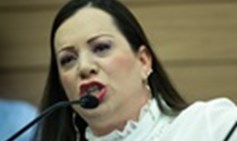
Putting Knesset Members Above the Law
Written By: Dr. Amir Fuchs
The amendment to the Immunity Law proposed by MK Tally Gotliv would allow MKs to grant themselves immunity from criminal and civil prosecution, undermining equality before the law and creating inherent conflicts of interest that disproportionately protect coalition members from accountability.

Four Comments on the Decision to Dismiss the Head of the Shin Bet
Written By: Prof. Suzie Navot
On March 16, 2025, Prime Minister Netanyahu announced his intention to bring the dismissal of Ronen Bar, the head of the Israeli Security Agency (Shin Bet), Israel's internal security service, to a vote of the full cabinet. Though not a perfect comparison, the Shin Bet is often seen as comparable to the FBI in the US.

Majority of Israelis Think PM Netanyahu Should Accept Responsibility for Oct 7 and Resign – Now or After the War
Written By: Prof. Tamar Hermann, Dr. Lior Yohanani, Yaron Kaplan, Inna Orly Sapozhnikova
Around half of Israelis think that it's unlikely that President Trump will turn away from Israel, if he thinks its policies are not aligned with US interests, while close to 40% think chances are fairly high or high; 73% of the total sample support continuing with the second stage of the hostage agreement and securing the release of all the hostages.

Israel and the Freedom in the World Report: A Pattern of Continuing Decline
Written By: Dr. Assaf Shapira, Prof. Ofer Kenig
In just over a decade, Israel’s score in the report published by Freedom House has fallen by 8 points, a decline that now puts it alongside countries such as Brazil and Namibia.

Israel’s Renewed Judicial Overhaul
Written By: Prof. Yuval Shany, Prof. Amichai Cohen
The battle over Israel’s legal system has resumed, threatening judicial independence.

The Dangerous Politicization of Judicial Appointments
Written By: Dr. Amir Fuchs
Changes in the composition of the Judicial Selection Committee threaten the independence of the judicial system. The current proposals would lead to a complete politicization of appointments to all courts and should be blocked.

Bill Proposal: Ombudsman of the Israeli Judiciary (Amendment – Appointment of the Ombudsman), 2024
Written By: Dr. Guy Lurie, Dr. Amir Fuchs
The proposed bill, which would change the selection process of the Ombudsman - responsible for investigating complaints about the conduct of judges and religious court judges - aims to intimidate judges and undermine their independence.

Justice Minister: Won't Cooperate with New Supreme Court President | Dr. Guy Lurie on Kan English Podcast
Written By: Dr. Guy Lurie
Dr. Guy Lurie, Senior Researcher at the Israel Democracy Institute, speaks to KAN reporter Naomi Segal following the election of Justice Isaac Amit to Chief Justice and the Minister of Justice's statement that he does not recognize the appointment and will not cooperate with him.

A Chief Justice Under Attack
Written By: Prof. Suzie Navot
While the selection of Justice Amit as President of the Supreme Court was done in accordance with the relevant legislation, the Justice Minister has declared the procedure "fundamentally improper and illegal." His refusal to recognize the selection creates a precedent that may lead to the deterioration of the authority of other institutions. This is what the beginning of a constitutional crisis looks like.

What is the Significance of the Justice Minister’s Declaration that he Will Not Cooperate with the President of the Supreme Court?
Written By: Dr. Guy Lurie
The lack of cooperation between the Minister of Justice and the President of the Supreme Court has numerous consequences that will, among other things, harm the services provided by the judiciary to the citizens of Israel.

A Legitimate Supreme Court President
Written By: Dr. Guy Lurie
Following Justice Isaac Amit's selection as Supreme Court President, Minister of Justice Levin immediately declared he would refrain from any collaboration between them, describing the selection process as unlawful. This announcement is both factually incorrect and a serious dereliction of his duties.

Ministers Levin and Saar's Proposed Changes to the Judicial Selection Committee
Written By: Dr. Guy Lurie
Justice Minister Yariv Levin and Foreign Minister Gideon Sa’ar presented their proposed changes to the composition of the Judicial Selection Committee (JSC) as a compromise aimed at achieving a gradual change in the judicial selection process, but many constitutional experts worry that the plan will have dire consequences resulting in the politicization of Israel’s judicial selection process.

The Takeover of Law Enforcement and Security Agencies as a Pivotal Factor in Democratic Decline | A Comparative Analysis
Written By: Dr. Nadav Dagan, Adv. Sapir Paz
Law enforcement and security agencies are central pillars of democratic rule, and therefore, their capture is a pivotal factor in democratic decline. A comparative analysis by IDI experts reveals that this takeover is often achieved quietly while striving to present all steps as lawful.

“Democracy on the Frontlines” Conference Survey
Written By: The Israel Democracy Institute
Only a small minority of the Israeli public (8%) think that the judicial overhaul should be the government’s highest priority today; The majority of respondents (53%) support keeping the current structure of the Judicial Selection Committee. Only around a quarter (27%) suppor adding politicians to the Committee.

IDI Releases New Survey Findings on Haredim; Convenes Haredi & Arab Leaders to Advance Shared Society
Written By: Israel Democracy Institute
The Israel Democracy Institute’s Joan and Irwin Jacobs Center for Shared Society convened its annual conference to discuss key issues of shared society.

Does the Minister of Justice Have Immunity?
Written By: Prof. Suzie Navot, Dr. Moran Kandelshtein-Haina
In response to a petition filed against him regarding the intentional delay in appointing a president of the Supreme Court, Minister Levin claimed that it is impossible to sanction him because he enjoys “substantive immunity.” A closer examination of the law reveals that this is not the case.

A “Cramped Interpretation of International Jurisprudence”? Some Critical Observations on the Amnesty International Genocide Report on Gaza
Written By: Prof. Amichai Cohen, Prof. Yuval Shany
Amnesty International's report on the war in Gaza fails to prove acts of genocide by Israel, even when attempts are made to move the goalposts.

“If I am not the one deciding – then we will change the rules”
Written By: Prof. Suzie Navot
In September, the Supreme Court ordered the Minister to fulfill his duty to convene the Committee because the system cannot be paralyzed. Since then, the Minister has convened the committee, but refused to appoint the Supreme Court President. Now, the Court has ordered him to do so.

Five Lessons from South Korea: On Democracy, Liberty and States of Emergency
Written By: Dr. Nadav Dagan
When South Korean President Yoon Suk Yeol, who previously praised liberal democracy, declared martial law, a swift and decisive response from the general public, and subsequently parliament, thwarted the move within hours. These events illustrate that in order to increase the chances of recovery and inoculation against democratic backsliding, democratic institutions must be strengthened.

The International Criminal Court Issues Arrest Warrants Against Prime Minister Netanyahu and Former Defense Minister Yoav Gallant
Written By: Dr. Eran Shamir-Borer, Prof. Amichai Cohen
The ICC's unprecedented arrest warrants against leaders of a democratic state carry severe and far-reaching consequences, yet Israel still has far-reaching options to mitigate the damage.

Politicizing Accountability: The Proposed "Public Committee of Inquiry"
Written By: Dr. Dana Blander
The proposed "Public Committee of Inquiry," for investigating the events of October 7th and its aftermath, is an attempt to circumvent the existing framework for such investigations and is unlikely to gain public trust.

IDI Survey: Most Jewish Israelis feel safer in a scenario with high number of civilian firearms; most Arabs feel less safe
Written By: Viterbi Family Center for Public Opinion and Policy Research, Center for Security and Democracy
The Center for Security and Democracy and the Viterbi Center for Public Opinion and Policy Research at the Israel and personal security—the present release focuses on internal security; a press release will follow tomorrow focusing on national security.

Minister of Defense Gallant is Fired: A Review of the Dismissal of Israeli Cabinet Ministers
Written By: Prof. Ofer Kenig
At first glance, the dismissal of Minister of Defense Yoav Gallant is not unprecedented – prime ministers hold authority to fire ministers, and Prime Minister Netanyahu has done so in the past. However, the circumstances surrounding the current dismissal are especially intense.

Why Does Everyone Except the Prime Minister Want a State Commission of Inquiry?
Written By: Dr. Dana Blander
Establishing a State Commission of Inquiry is the civic, moral, and public duty at the highest order. And it must be done now.

Security Considerations, the Duty to End Belligerent Occupations and the ICJ Advisory
Written By: Prof. Amichai Cohen, Prof. Yuval Shany
Prof. Cohen and Prof. Shany discuss three possible rationales for the ICJ's rejection of Israel’s security concerns and offer a few final observations on the appropriate balance that should hold between security considerations and continued presence in occupied territories.

The Sde Teiman HCJ Judgment: Too Little, Too Late?
Written By: Prof. Amichai Cohen, Prof. Yuval Shany
A recent judgment of the Israeli Supreme Court held that conditions in a notorious detention center must comply with Israeli law.

Fear of Politicization of Police Prosecution: A Sign to Separate from the Police
Written By: Dr. Guy Lurie
To protect the credibility of the police as an impartial law enforcement agency, independent oversight over the police prosecution unit - the police unit that issues criminal charges - must be increased through the Attorney General's office.

Understanding the Supreme Court's Ruling: Selection of the Supreme Court President
Written By: Dr. Guy Lurie
The Israeli Supreme Court recently issued a pivotal ruling, instructing the Minister of Justice to convene the Judicial Selection Committee and select a new President of the Supreme Court. This decision come after nearly a year in which this permanent position has remained vacant.

Appointing a President for the Supreme Court: Justice Levin's Actions Contravene the Law
Written By: Prof. Suzie Navot
After the Minister of Justice Yariv Levin refrained from convening the Judicial Selection Committee to appoint a Supreme Court President, the Supreme Court ruled that the Committee must convene to appoint a President—Prof. Suzie Navot analyzes the Court's decision.

The Security Cabinet Should Play a Greater Role in Determining Hostage Negotiations
Written By: Prof. Amichai Cohen, Adv. Mirit Lavi
The Prime Minister’s decision to retain the power to determine the parameters and scope of the hostage deal as a “policy issue” disregards the implications such a deal has on security issues. Israeli history underscores the importance of convening the security cabinet and upholding the appropriate democratic channels in times of war.

The Majority of the Israeli Public Supports Establishing a State Commission of Inquiry into the Events of October 7
Written By: Dr. Dana Blander, Dr. Eran Shamir-Borer, the Viterbi Family Center for Public Opinion and Policy Research
A special survey conducted in July 2024 evaluated public opinion on the need to establish a commission of inquiry into the tragic events of October 7th, 2024.

Netanyahu and His Ministers Have Driven Israel to the Verge of a Constitutional Crisis
Written By: Dr. Amir Fuchs
Disregard of the Attorney General’s authority to interpret the law by several government ministers is leading Israel toward a constitutional crisis.

The Role of the Attorney General and Government Conduct
Written By: Dr. Guy Lurie, Adv. Anat Thon Ashkenazy, Adv. Daphne Benvenisty
In recent days the Attorney General has issued several warnings that decisions are being made using "flawed work processes." This explainer provides an overview of the role and importance of the Attorney General in Israeli democracy, and the current criticism directed by the AG at the government.

Even Against Terrorists – The Rule of Law Prevails
Written By: Prof. Suzie Navot, Adv. Sapir Paz
The rule of law is a fundamental democratic principle, meaning that all governing bodies are subject to and must comply with the law. Despite the complexities inherent in ongoing war, this is true also of the IDF, and only decisive action against breaches of conduct may protect the rule of law in Israel and Jewish morality.

Advisory Opinion of the International Court of Justice on the Legal Consequences of Israel's Policies and Practices in the "Occupied Palestinian Territory"
Written By: Dr. Eran Shamir-Borer, Adv. Mirit Lavi
An in-depth analysis of the advisory opinion of the ICJ on the legal consequences of Israel's policies and practices in the 'occupied Palestinian territory.'

The United Nations’ Warning about Undermining the Independence of the Judiciary
Written By: Dr. Guy Lurie
The UN report paints a disturbing picture in which countries experience “autocratization”—an erosion of the foundations of democracy—through actions that undermine the judicial system’s independence. In Israel, the current government is aiming to undermine judicial independence in order to consolidate its power and authority at the expense of individual rights and the rule of law.

In Search of Complementarity: Israel’s Possible Responses to ICC Arrest Warrants
Written By: Prof. Yuval Shany, Prof. Amichai Cohen
If properly structured, both a commission of inquiry and a preliminary examination by the Israeli police could arguably meet existing complementarity standards.

A Sharp, Unequivocal, and Unanimous Supreme Court Decision to Draft Haredim
Written By: Prof. Suzie Navot
The Supreme Court ruling on June 25th addresses the question of whether the government is operating in accordance with the law. It determined that the state must act in accordance with the law and act to draft ultra-Orthodox. It also connects between the issue of exemptions and the criteria for eligibility for yeshiva budget funds.

The Prosecutor’s Circumvention of Article 18 Complementarity? A Flaw in the ICC’s Palestine Investigation
Written By: Prof. Amichai Cohen, Prof. Yuval Shany
Article 18 to the ICC Statute requires the Prosecutor to notify the relevant States regarding a decision to open an investigation, providing those States the opportunity to request deferral of the investigation, because of the existence of a domestic investigation. The Prosecutor’s approach of not issuing new notifications new charges emerged weakens the ability of the Pre-Trial Chamber to monitor the implementation of the complementarity principle.

The Threat of Militias Harm Democracy and the Stability of the State
Written By: Dr. Yael Litmanovitz, Adv. Mirit Lavi
A serious public and governmental discussion is needed regarding the privatization of internal security governance that we are currently witnessing, and its implications. This privatization threatens us all.

The Missing Side of the Triangle: The Danger Religious Zionism Faces
Written By: Prof. Benjamin Porat
Religious Zionism (the sector, not the political party that appropriated the name) is one of the most influential population groups in Israel. In the following essay, I wish to draw attention to a worrying process afflicting religious Zionism, the roots of which can be traced back to its early days and has dramatically worsened in recent years.

The Prosecutor’s Uphill Legal Battle?: The Netanyahu and Gallant ICC Arrest Warrant Requests
Written By: Prof. Yuval Shany, Prof. Amichai Cohen
In this article, we wish to identify and discuss here some potential problems we identify in the part of the request pertaining to Netanyahu and Gallant, at least as it was presented in the Prosecutor’s short announcement and by the expert report supporting it.
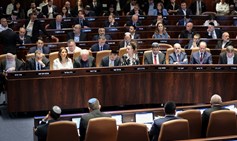
The Judicial Overhaul and Anti-Democratic Initiatives
Written By: Adv. Anat Thon Ashkenazy, Adv. Daphne Benvenisty
Judicial overhaul initiatives, along with other anti-democratic measures, have continued to be promoted by the government and the coalition in the Knesset. This document outlines the various actions taken in government that weaken the Israeli judiciary and democracy at large.
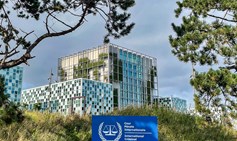
ICC Arrest Warrants Would Harm Israel at Home and on the International Stage
Written By: Prof. Amichai Cohen
From damage to scientific collaboration to cancellation of arms deals, arrest warrants for senior Israeli officials from the International Criminal Court in the Hague would pose a serious challenge to Israel

Continue to Stand Guard: Israel's Decline in Global Democracy Metrics is Troubling, but Not Catastrophic
Written By: Dr. Assaf Shapira
V-Dem's latest report downgraded Israel's status from a "liberal democracy" to an "electoral democracy." The change in Israel's category is concerning, but on its own, it does not necessarily indicate a clear democratic decline.

The Invisible Safeguards of Judicial Independence in the Israeli Judiciary
Written By: Dr. Guy Lurie
The Israeli democracy regulates the operation of the judiciary through the constraints of formal rules that check the political actors, the individual judges, and the judiciary. Yet beyond these formal rules, informal institutions and practices are sometimes equally important in the operation of the judiciary, as they are in any constitutional system. This article discusses informal institutions that are important in the operation and independence of the Israeli judiciary.

Justice Aharon Barak's Opinion Illuminated What the ICJ Missed
Written By: Prof. Suzie Navot,
While the ICJ decision briefly mentions the immediate context of the lawsuit, namely the Hamas attack on October 7, 2023, Judge Barak directs them to the full picture that they did not address. He writes about the events of October 7 as Israelis know them to be true.
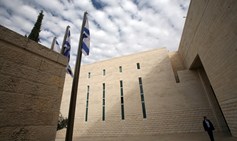
The HCJ Strikes Back: Israel’s Supreme Court Pulls the Plug on “Judicial Reform”
Written By: Prof. Amichai Cohen, Prof. Yuval Shany
Two judgments issued by the Supreme Court in the first week of 2024 deal a decisive blow to the Netanyahu government’s efforts to radically rebalance the branches of government.
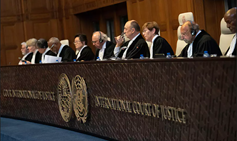
International Court of Justice in The Hague Genocide Proceedings -
Written By: Adv. Shlomit Ravitsky Tur-Paz
One of the claims brought forth in the Application against Israel that it is committing genocide against the Palestinians is that many senior members of the government made references to the biblical precept to wipe out the memory of the ancient Amaleks. This is my professional opinion on the meaning of these locutions and the use made of them in the Application.

Explainer: South Africa’s Case Against Israel at the International Court of Justice
Written By: Prof. Amichai Cohen
The ICJ is hearing allegations that Israel has violated the Convention on the Prevention and Punishment of the Crime of Genocide. What is the ICJ? How is the government responding? What are the implications for the war against Hamas and Israel’s international standing?
All the answers in a special IDI explainer.

Can a unified Israel rise from the ashes of the Hamas war?
Written By: Yohanan Plesner
While we entered this war more divided than ever – and with large numbers even saying that they believed civil war to be a possibility – Israelis today are united in their determination to win.
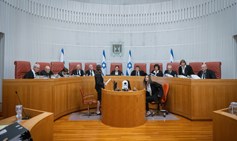
What Was the Supreme Court’s Ruling on the Revocation of the Reasonableness Doctrine? Eight Key Points
Written By: Prof. Amichai Cohen, Dr. Amir Fuchs, Dr. Guy Lurie
The Supreme Court's ruling to strike down the amendment made to the Basic Law: The Judiciary and reinstate the Standard of Reasonableness is a landmark decision on an issue that has been exceptionally divisive within Israeli society. Will this lead to a constitutional crisis? 8 Key points from IDI's experts examining the court's decision.
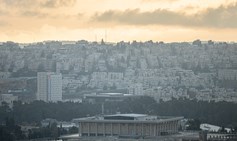
The Verdict is in: Checks and Balances are Here to Stay
Written By: Prof. Suzie Navot
This decision refocused our attention not only on the specific law it struck down but also on the unfinished business of completing our country’s constitutional framework
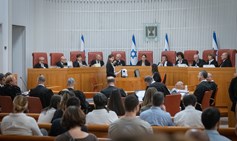
The Supreme Court Ruling on Canceling the Reasonableness Clause—Implications
Written By: Dr. Amir Fuchs
The Supreme Court ruled that the Court has authority to perform judicial review on Basic Laws, and that an intervention was necessary in the case of the amendment to the Basic Law: The Judiciary revoking the Standard of Reasonableness. What are the implications?

Israel Democracy Institute Statement on Israel's Supreme Court Ruling
The Israel Democracy Institute issued the following statement on the High Court of Justice’s decision to strike down the amendment passed in July to the Basic Law: The Judiciary, eliminating the Court’s use of the Reasonableness Standard.

A Blow to Internal Security Governance in Israel
Written By: Adv. Mirit Lavi, Dr. Yael Litmanovitz
During the October 7th attacks, the home front became the front line with Israelis attacked in their own homes. This new reality led not only to a beefed-up presence of police and military forces in public spaces, but to civilian-based security initiatives in many communities. Finding the right balance between the police and civilians is imperative to providing much-needed safety and security for all Israelis.
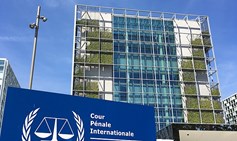
International Law "Made In Israel" Vs. International Law "Made For Israel"
Written By: Prof. Amichai Cohen, Prof. Yuval Shany
Tendentious interpretations of international law are not surprising considering the high emotions surrounding the long and bloody Israeli-Palestinian conflict. However, to serve its purpose guiding the conduct of States and retain a high degree of legitimacy, international law must serve as a common legal language.
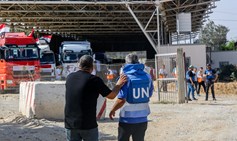
The War on Hamas and International Law
Written By: Prof. Amichai Cohen, Tamar Hostovsky Brandes
International law does not forbid the evacuation of residents to the southern Gaza Strip; on the contrary, it would appear to demand of Israel that it warns residents and encourages them to leave.

Special State of Emergency in Israel’s Court System
Written By: Dr. Guy Lurie
What is a special state of emergency and who declares it?
Minister of Justice Levin declared a "special state of emergency" on October 7th, which has since been extended and is currently valid until October 20th. How does this affect the justice system in Israel?
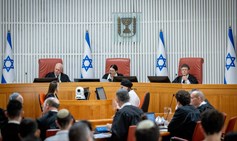
The Supreme Court Hearing on the Incapacitation Law
Written By: Dr. Amir Fuchs
The Supreme Court hearing on September 28th, 2023 will focus on the question of whether the amendment should be interpreted as being valid only in the future, to remedy the perception of personal benefit for the current prime minister.
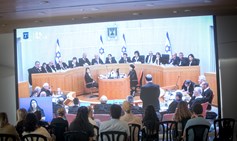
Three Big Cases in Israel's September to Remember
Written By: Prof. Amichai Cohen, Prof. Yuval Shany
Three petitions before the Israeli Supreme Court are transforming the usually slow month of September into a pivotal one in Israel’s ongoing judicial crisis.

Populism as an Existential Threat in Israel
Written By: Prof. Gideon Rahat
In an effort to create uniformity, populists are ready to destroy the state.

The Role of Legal Advisors - Explainer
Written By: Dr. Guy Lurie, Adv. Daphne Benvenisty
Transforming legal advisors into political appointees will thwart the dual purpose of their role- helping the ministry implement its policy, while maintaining the rule of law.

No More Legal ‘Gatekeepers’? Plans to Downgrade the Status of Government Legal Advisers in Israel
Written By: Prof. Amichai Cohen, Prof. Yuval Shany
Downgrading the independence of government legal advisers is not among the highest-profile proposals to reform the Israeli legal system being advanced by Israel’s new right-wing government, but weakening the status of government legal advisers is actually an important and troubling part of the government’s package of proposed reforms.
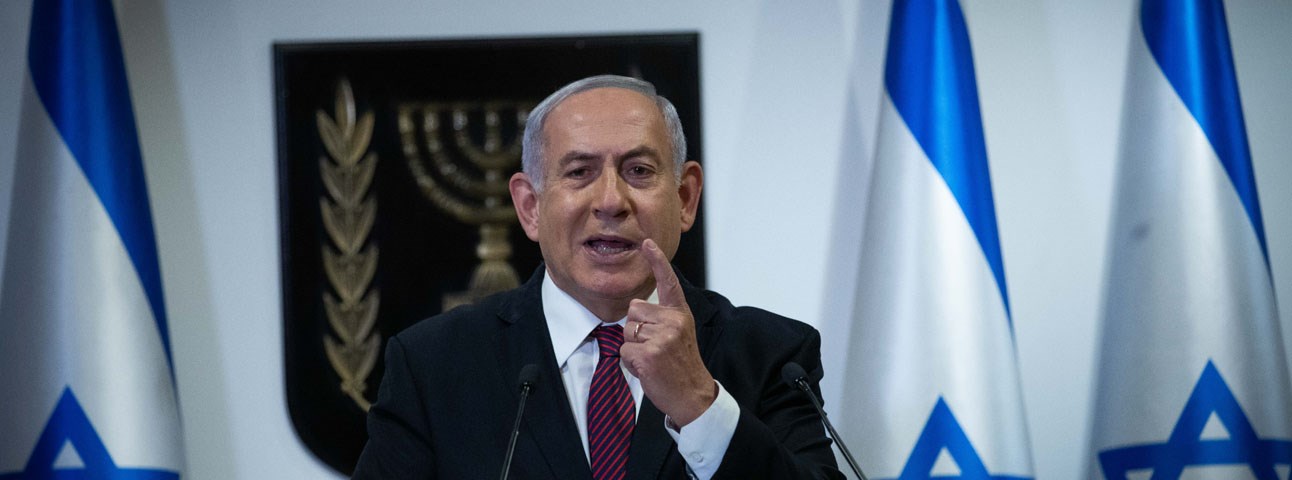
The Incapacitation of a Prime Minister: An Explainer
Written By: Dr. Amir Fuchs
What provisions does Israeli law provide for the possibility of declaring the Prime Minister "Incapacitated". IDI expert explains
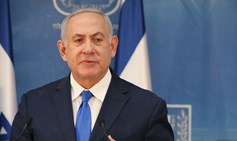
Can a Criminal Defendant be Banned From Forming a Government?
Written By: Dr. Dana Blander
Minister Gideon Saar's proposed bill preventing a criminal defendant from forming a government is unprecedented, but so is the reality in Israel.

The Return to Balfour: Israel’s Supreme Court Strikes Down Coronavirus Regulations Curbing the Right to Protest
Written By: Prof. Yuval Shany
The latest judgement in a series of legal challenges to controversial measures adopted by the Israeli government in response to COVID, shows that the Supreme Court still plays an important role in checking government excess and reaffirming basic democratic and human rights values
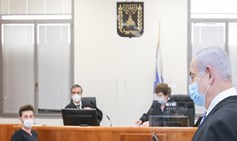
A Prime Minister on Trial: Qs and As
Written By: Dr. Amir Fuchs
The Prime Minister's trial reconvenes with a pandemic raging and the elections camping continuing. What can we expect?
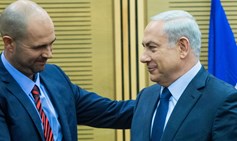
Don't Cross the Red Line
Written By: Yohanan Plesner
Israel's system for appointing top law enforcement officials must not be changed
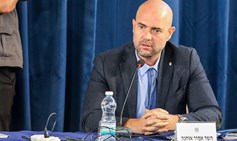
Wanted: A Full-Time Police Commissioner
Written By: Yohanan Plesner
As the police are increasingly drawn into a conflict between protecting the right to protest and attempts to politicize their work, it is clear that appointment of a full-time commissioner is long overdue
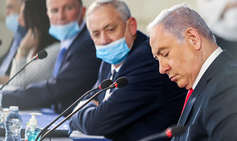
Government's Coronavirus Law is Impractical and Undemocratic
Written By: Dr. Amir Fuchs
Legislation giving ministers total authority over decision-making sets dangerous precedent for Israeli democracy and chaotic decision making will surely diminish the already-dwindling public trust in both government and future emergency regulations
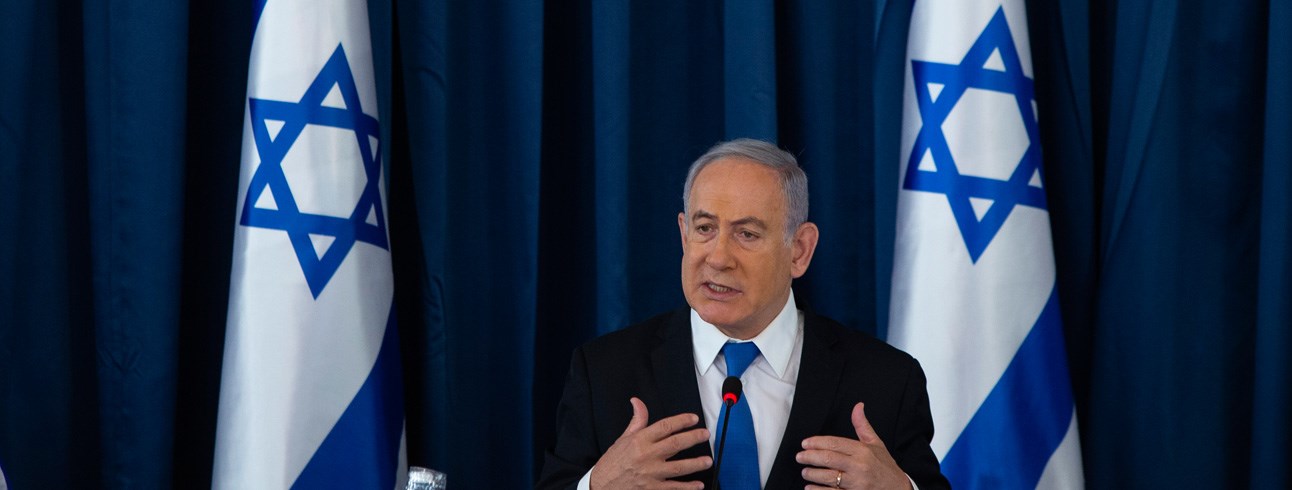
No More Shame - No More Responsibility
Written By: Prof. Yedidia Z. Stern
Now more than ever Israel needs a leader who will bolster its inner strength - is the leadership up to the task?
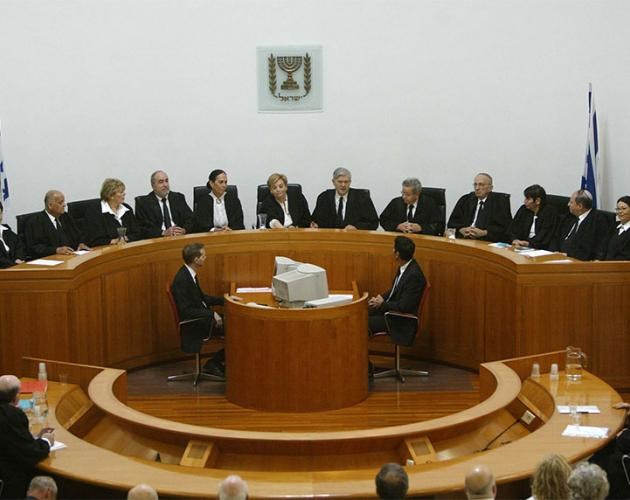
How Many Laws Were Struck Down by the Supreme Court in Israel?
Written By: Dr. Amir Fuchs
With calls to enact an 'override clause' to push back against judicial review back in the news, Dr. Amir Fuchs analyzed the twenty laws the Court has overturned since Israel's establishment
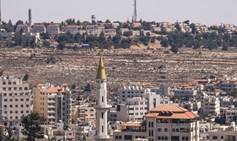
Supreme Court Ruling on Law for Regulating Settlements
Prof. Amichai Cohen explains the Supreme Court's decision to strike down the Land Arrangements law.

Without Trust, There Can Be No Compliance
Written By: Dr. Dana Blander
The Israeli public deserves leadership that isn't weighed down by a track record of incoherent instructions, selective enforcement, and politicians’ own failure to comply
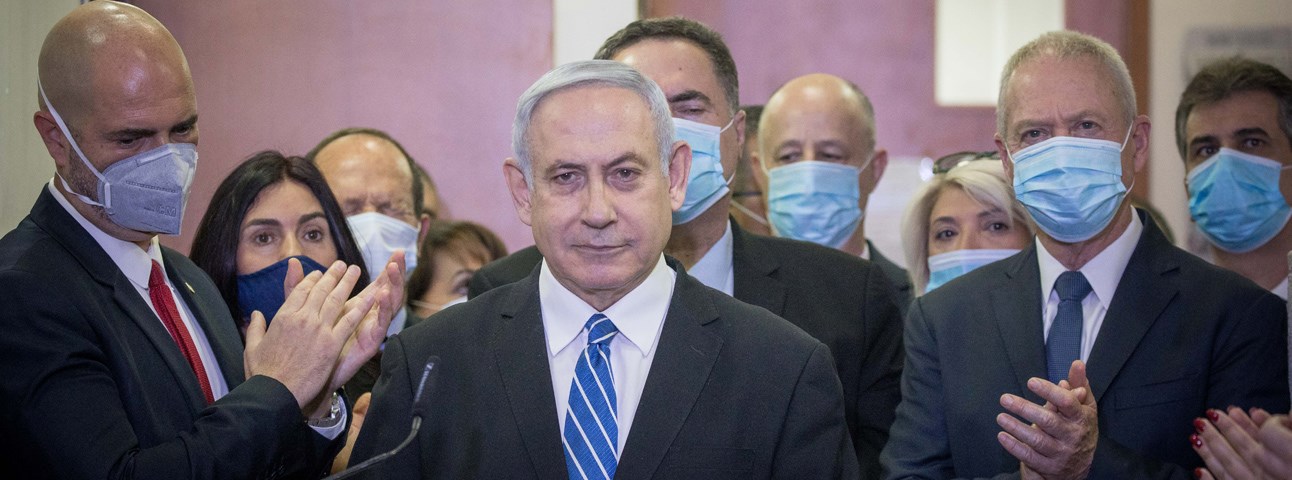
On the Street or in the Courtroom?
Written By: Prof. Yedidia Z. Stern
The Prime Minister’s supporters are trying to entrench a perception among the public that he is facing a political – rather than a criminal – trial.
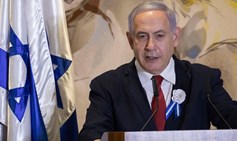
The Rule of Law Over the Ruler
Written By: Prof. Yedidia Z. Stern
It's one of democracy's substantial achievements: just like every citizen, Netanyahu will stand before 3 judges, whose task is to decide whether he is innocent or guilty

IDI's Legal Experts Hold Online Briefing Ahead of Netanyahu's Trial
Written By: Prof. Yuval Shany, Dr. Amir Fuchs
With Prime Minister Netanyahu's groundbreaking trial is set to commence next week, Professor Yuval Shany, IDI's Vice President of Research, and Dr. Amir Fuchs, the head of the Defending Democratic Values Program, briefed journalists on how the court process will proceed and the long-term legal implications of trying a sitting prime minister.
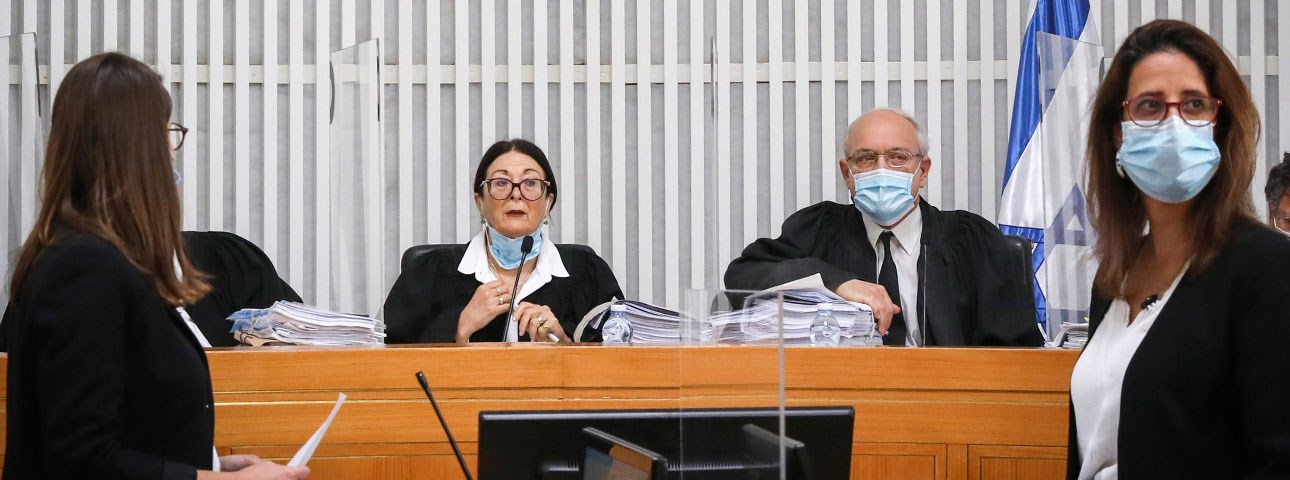
Live Broadcasts from the Supreme Court
Written By: Yair Sheleg
Live broadcasts brings a breath of fresh air and a better understanding of the Supreme Court
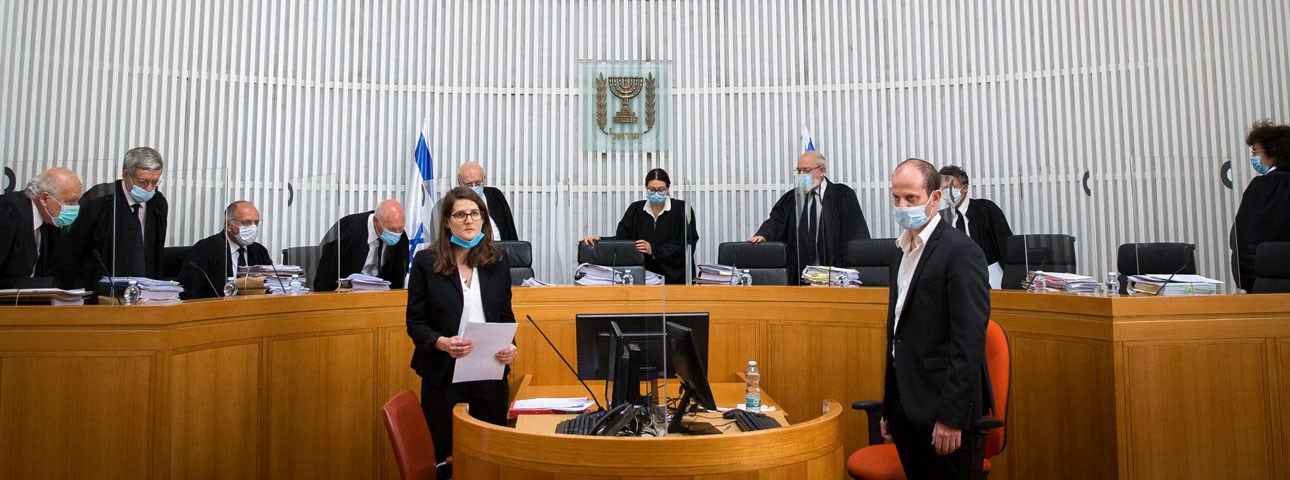
Sanity Prevails: 11 to 0
Written By: Prof. Yedidia Z. Stern
Israel's High Court handed down a unanimous decision - and the public saw for themselves that there was no devious plot to undermine the separation of powers.

Moment of Truth for Judicial Restraint
Written By: Prof. Yedidia Z. Stern
Many Israelis attribute a left-wing bias to the Supreme Court and accuse it of extreme activism, but the hearings that were broadcast live highlight the vast gulf between the Court's image and the reality

Bibi is Given the "Go Ahead" by Supreme Court
Written By: Dr. Amir Fuchs
IDI’s Dr. Amir Fuchs speaks with Richard Pater of Bicom about the recent Supreme Court hearing and the rulings they handed downs regarding the new government
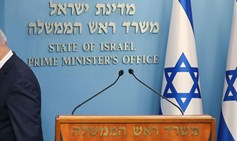
PM Under Indictment - A Dangerous Precedent
Allowing Netanyahu to form a government would constitute a conflict of interest and would result in a negative and irreversible precedent for the rule of law
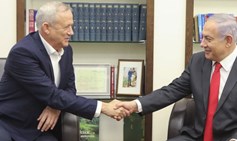
Two Hedgehogs and a Hydra
Written By: Prof. Yedidia Z. Stern
This is a familiar plague: rewriting the game rules of democracy to suit changing political circumstances has become the norm in Israel.

Court Systems Worldwide During the Coronavirus
Written By: Dr. Guy Lurie
Israel is not the only country in which the court system has been curtailed, or had its activity modified, as a result of the coronavirus pandemic. Many countries are taking such measures, while at the same time striving to refrain from harming citizen's basic right of available access to courts.
Included are several examples from around the world.
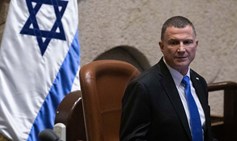
Speaker of the Knesset's Resignation – What Happens Next?
Written By: Dr. Amir Fuchs
Speaker of the Knesset Yuli Edelstein has resigned so as not to comply with the Supreme Court ruling to hold elections for a new speaker - what happens next? IDI’s Dr. Amir Fuchs explains

Speaker of the Knesset's Resignation - Statement
Yohanan Plesner, President of the Israel Democracy Institute, reacted to the Speaker of the Knesset Yuli Edelstein's resignation

Virus and Democracy
Written By: Prof. Yedidia Z. Stern
Even a life-saving measure must be weighed against the threat it poses to democracy -- we do it all the time
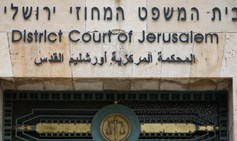
Prime Minister on Trial - Explainer
Written By: Dr. Amir Fuchs
Prime Minister Netanyahu’s trial in the Jerusalem District Court is to begin on March 17th. Dr. Amir Fuchs, a researcher at the Israel Democracy Institute provides responses to key questions as to what this process will look like.
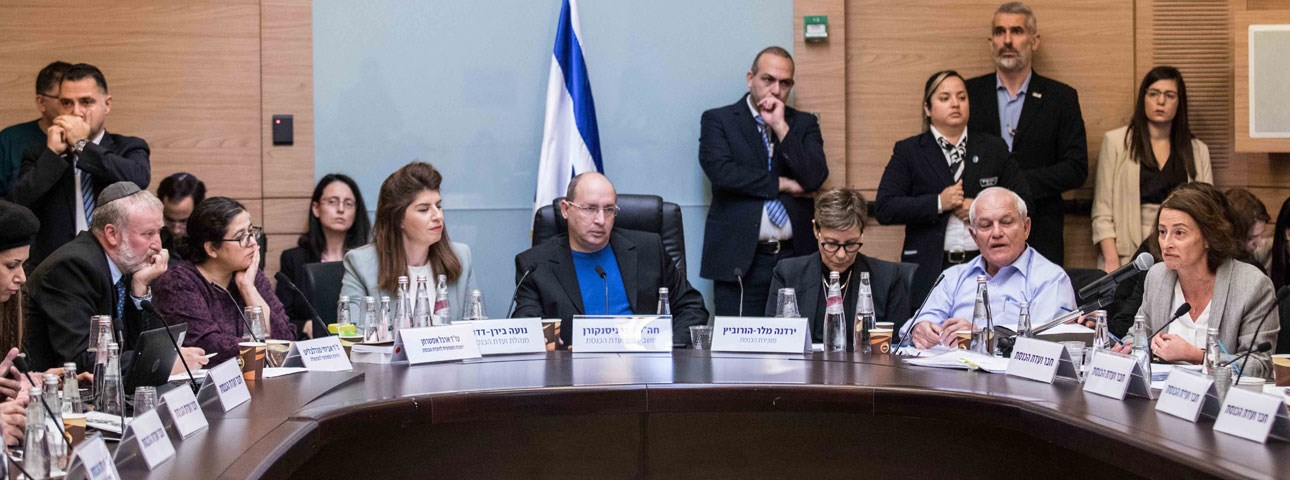
The Pot Calling the Kettle Black
Written By: Prof. Yedidia Z. Stern
In the case of a MK against whom the attorney-general has decided to file an indictment, the members of his party and of his Knesset bloc vote as one.
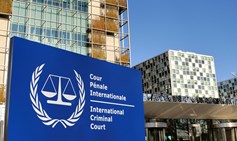
Developments in the Investigation Launched at the ICC in The Hague
Written By: Colonel (Res.) Dr. Liron A. Libman
On January 21st, the ICC’s pre-trial court decided to reject the prosecutor’s request to allow her to submit a petition - on technical grounds. So what's next?

Can the “Deal of the Century” be Implemented Under a Transitional Government?
Written By: Prof. Amichai Cohen, Dr. Amir Fuchs
What are the legal barriers standing in the way of the current government implementing the U.S.'s “Deal of the Century” peace plan?

It Boils Down to Netanyahu’s Conspiracy Theories
Written By: Prof. Yedidia Z. Stern
Given the dark insinuations in the PM's request for Knesset immunity, a vote in his favor would be a vote of no-confidence in the rule of law

A Vote of Confidence in the Rule of Law
Written By: Prof. Yedidia Z. Stern
Regardless of the decision regardin PM Netanyahu's request for immunity - the debate will revolve around the more important question: the status of the rule of law in Israel
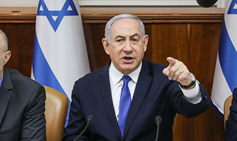
Immunity for the Prime Minister: Explainer
Written By: Prof. Yuval Shany, Dr. Amir Fuchs
IDI experts explain Israel’s immunity law, what happens when it’s requested and what the implications may be for the political system.

A Legal or Political Matter?
The political system is being dragged into elections for the third time within a year, for what seem to be extraneous reasons related to the question of how Netanyahu will handle his cases
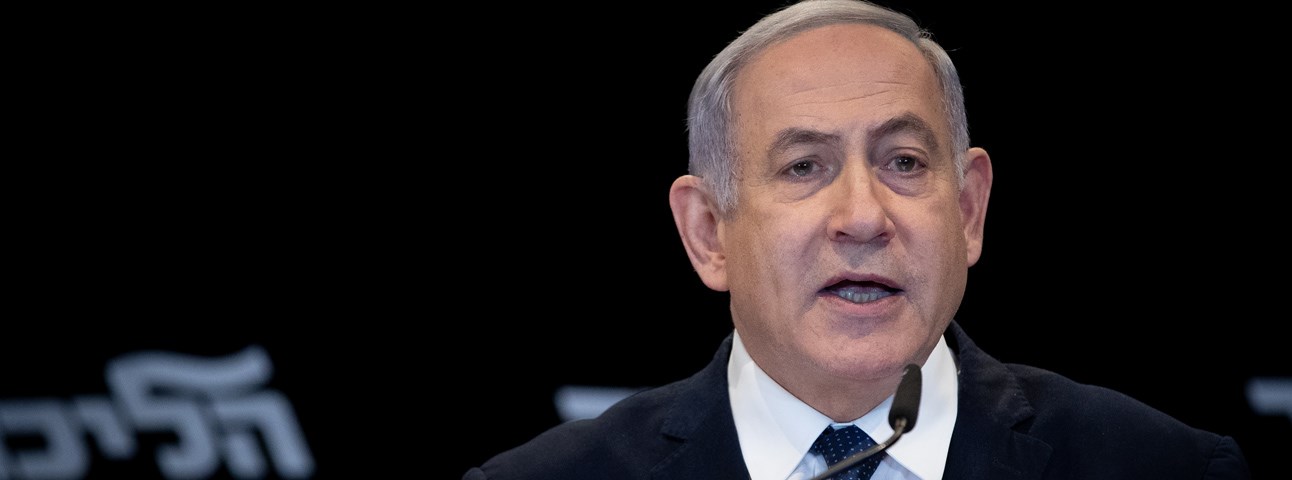
Only the Voters can Put a Prime Minister Out to Pasture
Written By: Prof. Yedidia Z. Stern
After lengthy deliberation, the attorney-general, who holds the statutory authority to file charges against him, decided to indict Netanyahu.

Israeli Voters - Not Judges
Written By: Prof. Yedidia Z. Stern
Israeli Voters, Not Judges, Must Determine Who Will Lead the Country Next
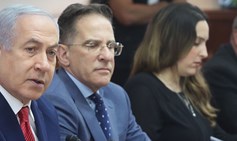
Remove Netanyahu Right Now on Grounds of Temporary Incapacity
Written By: Prof. Yuval Shany
There's an unacceptable, extreme conflict of interest between Netanyahu the accused and Netanyahu, head of the executive branch

Populism and its Implications for Democracies: Summary
International Experts Gather at IDI to Debate Populism and its Implications for Democracies as Israeli Electoral Deadlock Continues

Israel's Political Crisis and the Challenge of Populism
Written By: Prof. Yuval Shany
Actual policy making in a liberal democracy is based on sophisticated nuances.
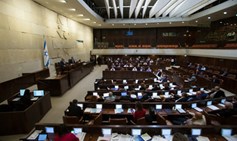
The Knesset is not a Sanctuary
Written By: Dr. Amir Fuchs
This claim was first put forth in a letter from the Knesset’s legal adviser, Eyal Yinon, to the speaker of the Knesset with regard to the situation of MK Haim Katz.

Justice in the Courtroom, Not in the Streets
Written By: Prof. Yedidia Z. Stern
Our level-headed, intelligent, rational prime minister has lost his good judgment and is inciting against some of the most important institutions of state
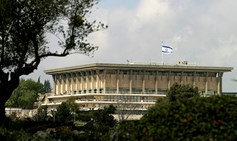
Do Not Turn the Knesset into a Sanctuary from the Law
IDI experts issue a statement calling for the Knesset to form a special House Committee to debate immunity
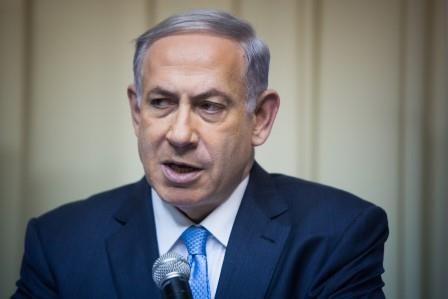
Statement by IDI on the Attorney General's Announcement
As events unfold, IDI puts out a statement on the Attorney General's breaking announcement to indict Prime Minister Netanayhau

Israel's Real Minority Government
Written By: Dr. Amir Fuchs
The rhetoric accompanying the attempts to delegitimize a “minority government” is questionable. The current transitional government is supported only by 55 Knesset members, with 65 opposing it. If any government deserves the moniker ‘minority government,’ it is the one currently in office.
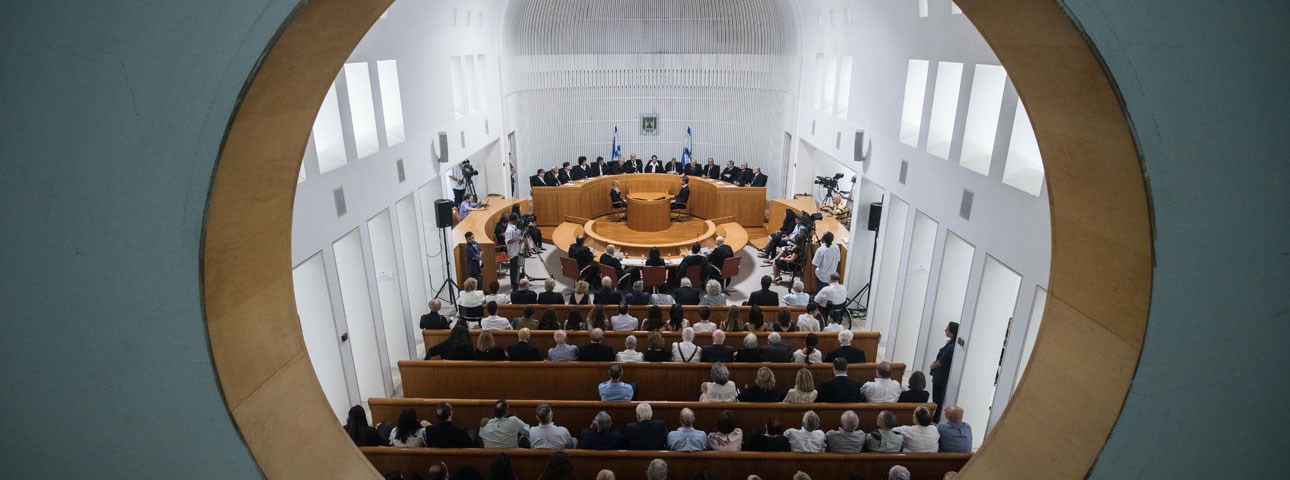
Assault on Israel's Judicial System: The Angel of History is Watching Us
Written By: Prof. Yedidia Z. Stern
Justice Minister Amir Ohana,has launched a fierce attack against the State Attorney’s Office. The Prime Minister who appointed him would be wise to remember that the angel of history is peeking over his shoulder.

Despite The Election Tumult, Israeli Democracy Dodged A Bullet
Written By: Yohanan Plesner
Coalition negotiations continue and Israel does not yet have a government - but one thing is certain - Israeli democracy dodged a bullet.
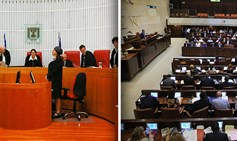
The Rule of Law: The Attack on the Principle of “All are Subject to the Law” in Israel
Written By: Dr. Amir Fuchs
Like all democracies, the principle of the "Rule of Law" exits in Israel. In recent years, there have been quite a few attempts to overcome this tenant, potentially causing long-lasting damage to public confidence in the justice system. Dr. Fuchs explains.
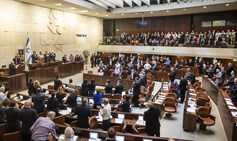
Democracy: Rule of the People?
Written By: Prof. Yuval Shany
The recent wave of populism forces us to sharpen our understanding of the literal meaning of 'democracy' and 'the rule of the people' as well as the accepted definition of liberal democracy
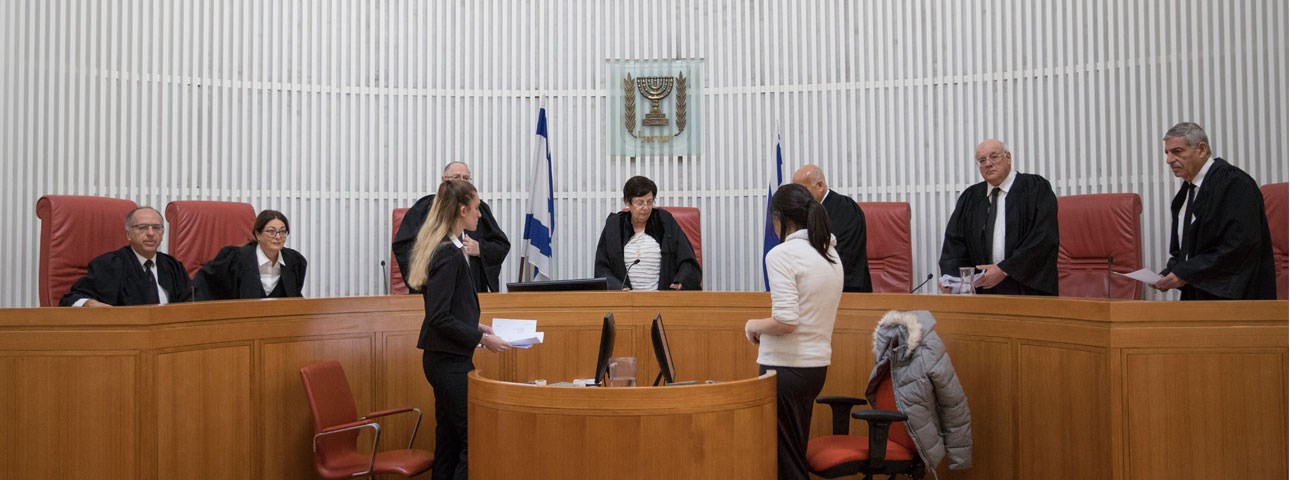
Whatever Happened to the Override Clause?
Written By: Prof. Yuval Shany
It turns out that voters actually want robust judicial oversight - which explains why the Override Clause and placing limitations on judicial review have not been prominant in the election campaign
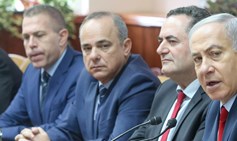
Camera Bill Legislation: Misuse of Political Power of a Transitional Government
An unprecedented decision that adversely affects the status of the Attorney General and constituted a misuse of political power by a transitional government.
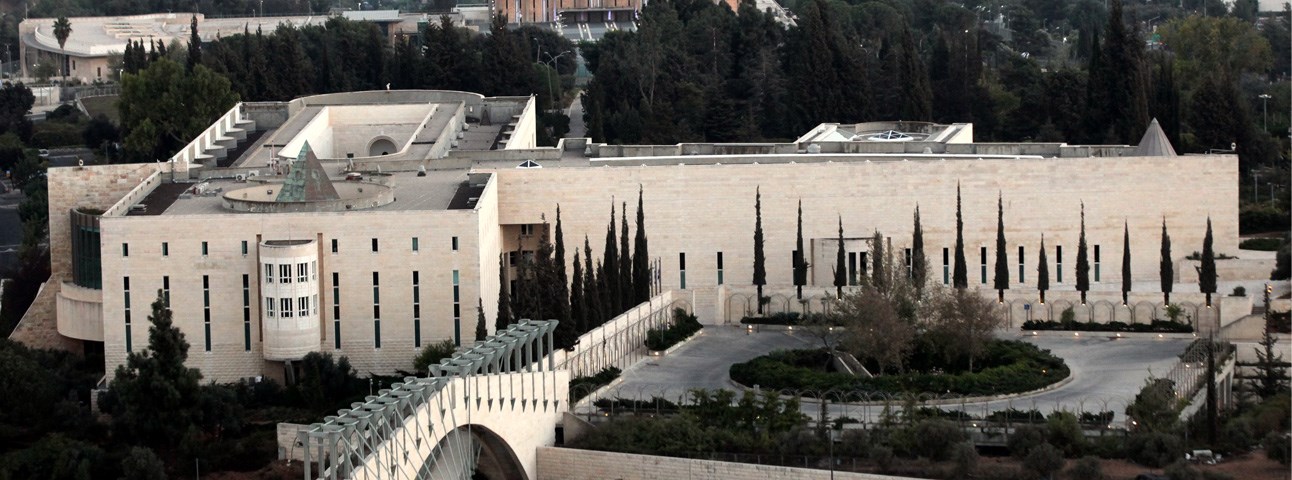
The Supreme Court Doesn't "Tie Hands"
Written By: Dr. Amir Fuchs
On claims that the High Court ties the security establishment's hands, Dr. Amir Fuchs says "the truth is that when authoritative figures from the defense establishment appear before the court to support some important security requirement, the court almost always adopts their argument".

Attempts to Curtail the Supreme Court
Written By: Yohanan Plesner
The Israel Democracy Institute offers a look inside efforts to reduce politicization of Israel's Supreme Court.
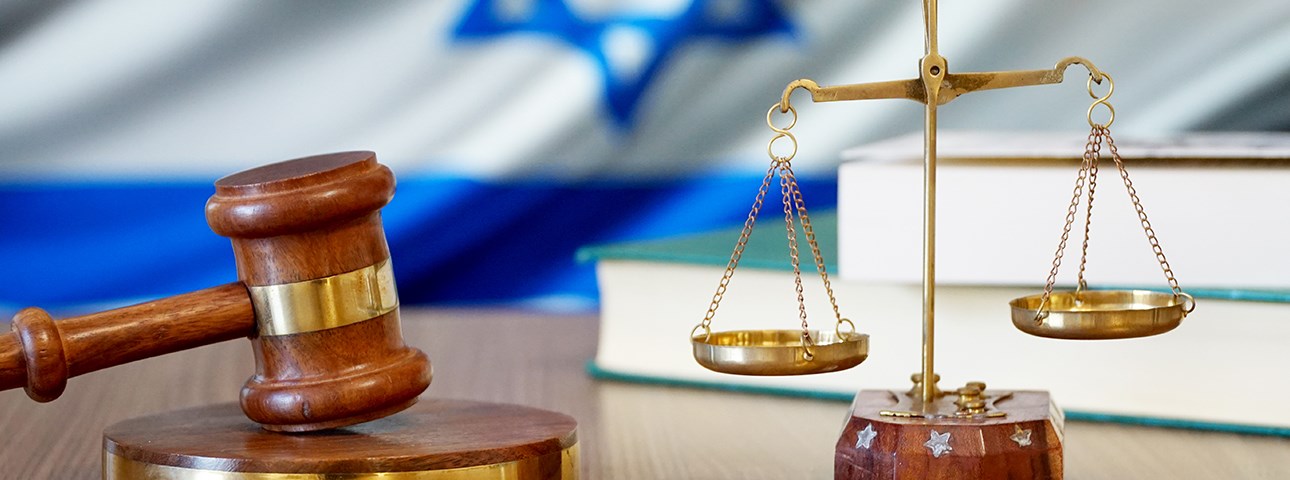
Judicial Review Under Review
Written By: Dr. Amir Fuchs
Israel’s judiciary is under assault, according to some, or experiencing a necessary corrective to rampant judicial activism, according to others. Dr. Amir Fuchs, legal expert and the head of the Defending Democratic Values project at the Israel Democracy Institute, walks through the Knesset’s attempt to change the judiciary and the balance of powers in Israel, what’s behind it, and what it means for the country.

Toward Tyranny of the Majority
Written By: Dr. Amir Fuchs
Granting the government additional power, which will enable overriding Basic Laws in simple legislation must not be allowed, lest the defense of basic civil rights in Israel are compromised
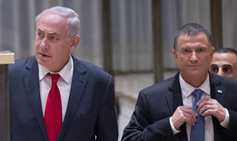
Repealing Law to Dissolve the Knesset: Motivated by Personal Interests
Written By: Prof. Yuval Shany, Dr. Amir Fuchs, Dr. Guy Lurie, Prof. Ofer Kenig
The proposal promotes personal and political interests, strikes a severe blow to the public’s trust in democracy and to elected officials’ obligation to act with integrity
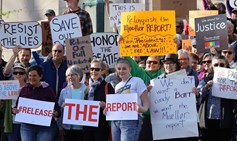
The Mueller Report: What it Teaches Us
Written By: Dr. Tehilla Shwartz Altshuler, Brig. Gen. (ret.) Itai Brun
Can the Mueller report shed light on the labyrinth of cyber connections, which are at the basis of the suspected criminal activity? Probably not.

Cause or Effect? The Media's Role in Democratic Decline
What can the media do to safeguard democracy in an increasingly hostile environment? Susan Glasser, staff writer for The New Yorker and a participant in IDI’s recent Democracy Under Stress conference, analyzes the challenges facing American media.
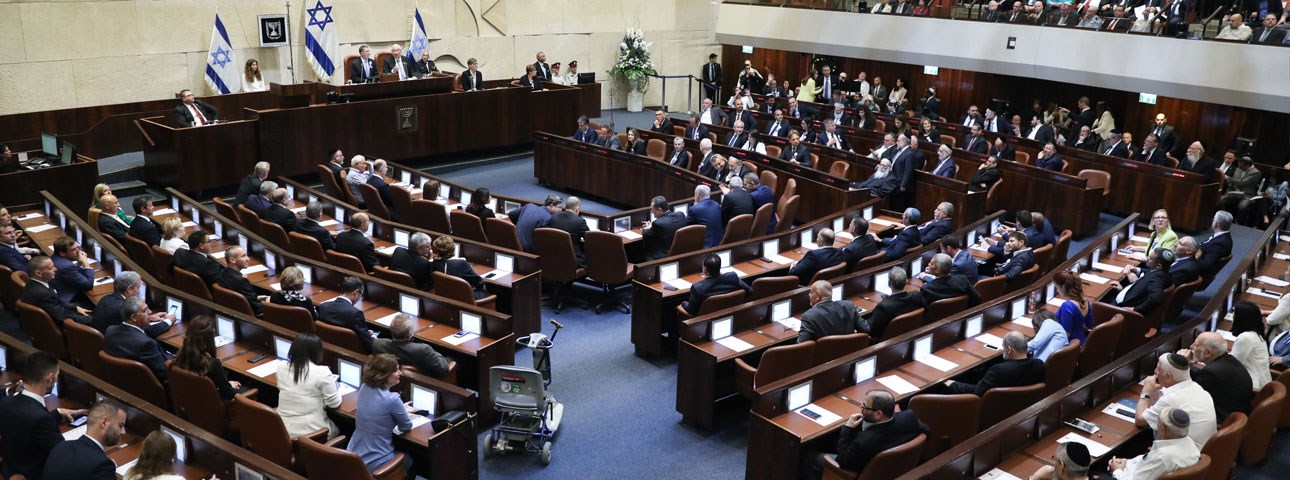
The Weakest Constitution in the World
Written By: Prof. Yuval Shany
The Override Clause would not alter the balance between the branches of government – it would shift the balance of power between the government and the governed

Prime Minister under Investigation – A Guide for the Perplexed
The following guide represents the collective wisdom of the Israel Democracy Institute's scholars and explains the various possibilities and scenarios as Israel enters unchartered political and legal waters
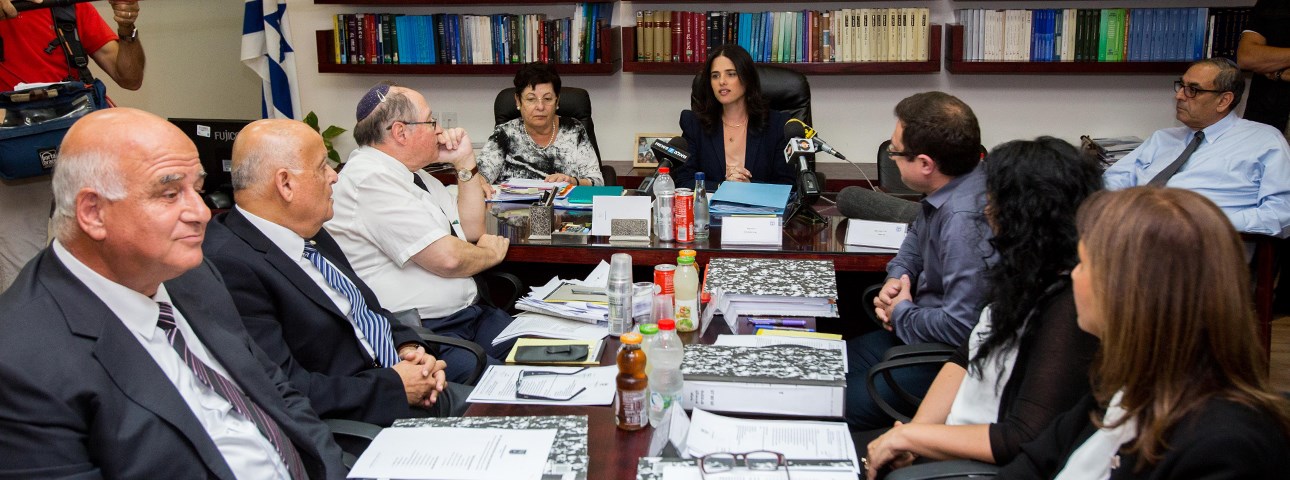
A Lethal Virus
Written By: Prof. Yedidia Z. Stern
"If indeed a member of the Judicial Appointments Committee was swayed by bribes, this constitutes the deepest possible subversion of the system and its legitimacy".
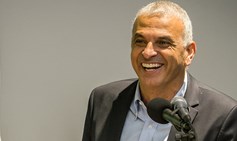
The Constitutional Tug of War in the Outgoing Coalition
Written By: Dr. Amir Fuchs
The 20th Knesset was the most injurious of all with regard to democratic values, freedom of expression, gatekeeping and, above all, minority rights. In the next government we can only hope that someone will champion liberal center-right values to continue to protect our democracy.

Beyond the Veil of Ignorance
Written By: Prof. Yedidia Z. Stern
One fact is clear: the moment the attorney-general announces his decision, half of the public will reject it, to the point of accusing him of serving political interests and not really seeking the truth.

The Attack on Legal Oversight Threatens Us All
Written By: Prof. Yedidia Z. Stern
Government-sponsored legislation proposing to change how ministry legal advisors are appointed has stirred up quite a storm. The idea should worry all of us, not only jurists.

A Misconstrued Perception of Who the "Bad Guys" Are
Written By: Prof. Yuval Feldman
Behavioral ethics, a growing area within psychology and management literature, demonstrates that an individual’s unethical behavior is demonstrated through self-deception.

On Political Appointments of Legal Advisers in Government Ministries
Written By: Yohanan Plesner , Prof. Yuval Shany, Prof. Yedidia Z. Stern
The Israel Democracy Institute ahead of the Knesset Constitution Committee debate on political appointments of legal advisers in government ministries: "A blow to the civil service ethos; an opening for potential corruption, forsakes public interest".

Government Ministers to Vote on Bill to Override Supreme Court Decisions
Written By: Lahav Harkov | Jerusalem Post
The Prime Minister is currently fighting to remove the Supreme Court's power to strike down Knesset legislation, thereby turning the last protector of human rights in Israel into merely an advisory board. He is even threatening elections over the issue.
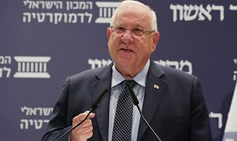
A Democracy in Flux
President Reuven Rivlin, Justice Minister Ayelet Shaked,Leader of the Israeli Labor Party Avi Gabbai and State Prosecutor Shai Nitzan relate to tensions surrounding the prime minister's investigations and the coalition crisis at a special conference held last night with Makor Rishon
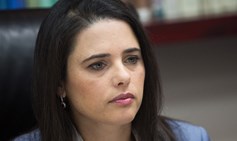
The end of the delegitimization of the Supreme Court
Written By: Prof. Yedidia Z. Stern
“The campaign to remake the Supreme Court has been completed” said Justice Minister Shaked - so now with its new and more conservative profile, there is no longer any justification for the delegitimization of the Supreme Court.
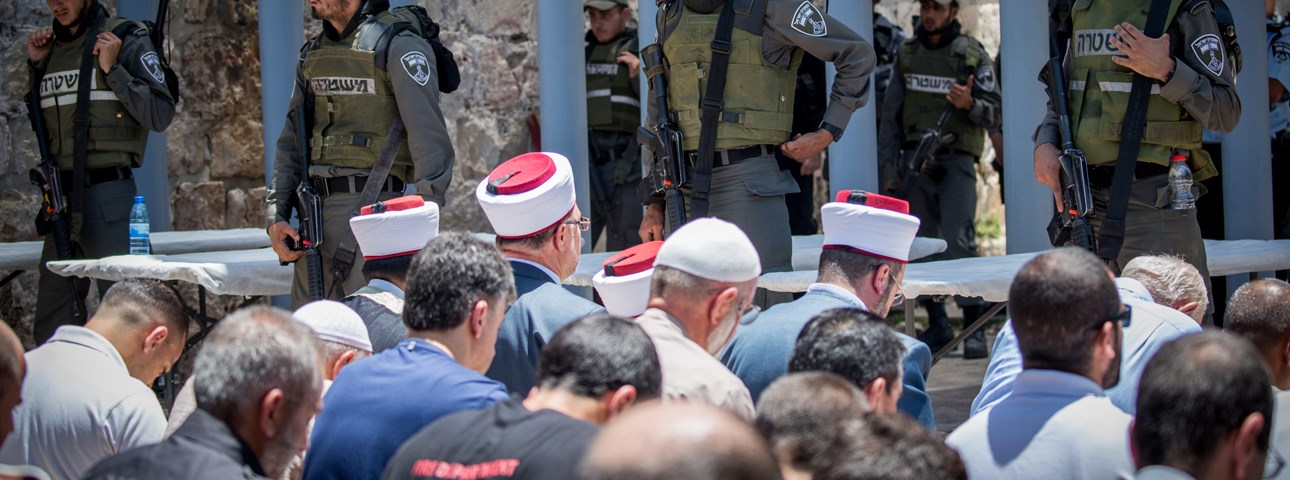
Survey: 56% of Jews Think Most Arab Citizens Support Temple Mount Attack
Monthly Peace Index also finds that 65% of Israelis do not trust Prime Minister Benjamin Netanyahu's handling of the crisis on Temple Mount.

IDI Presents Outstanding Parliamentarian Award to MKs Elharar and Folkman
Knesset Speaker MK Yuli Edelstein: "It's time to bring the rules of the game back to the Knesset

Two Surprising Lessons of the Six-Day War
Written By: Dr. Jesse Ferris
Basics such as bread and cooking oil began to disappear from the shelves. The Egyptian street boiled with anger. And the foundations of the regime began to shake.
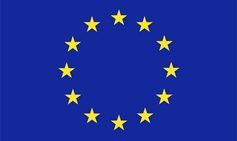
Britain's Referendum: Democracy at its Finest or Crass Populism?
Written By: Dr. Dana Blander
In Britain, nationwide referendums are a rare event. This development highlights an issue that many of today's democracies are struggling with: the ongoing tension between direct and representative democracy. Is a national referendum a shining example of the democratic ideal put to practice, or does it represents deterioration to cheap populism?

Could Profiling Prevent Another Orlando Shooting?
Written By: Story Hinckley
Often missed in the civil liberties debate over profiling is evidence that shows it is not effective. But proponents point to Israel, whose airport screening has kept it free of attacks since 1972.

MK Suspension Bill: Anti-Democratic to the Core
Written By: Dr. Amir Fuchs
Last week, the Knesset Law, Constitution and Justice Committee began deliberating over a proposal that would fundamentally alter the Basic Law – The Knesset: The MK Suspension Bill. If passed, the proposed bill would grant members of Knesset the power to remove another parliamentarian. This op-ed originally appeared in the Jerusalem Post.

Between ‘Voluntary’ Departure to an Undisclosed Third State and Indefinite Detention
Written By: Prof. Reuven (Ruvi) Ziegler
Israel refuses to officially disclose the identity of the states to which relocation takes place.

Override: A Serious Blow to Democracy
Written By: Dr. Amir Fuchs
Dr. Amir Fuchs argues that an override of Supreme Court decisions should be stoutly resisted by democrats from all parts of the political spectrum.

New Partners in the Struggle Against Terrorism
Written By: Prof. Yedidia Z. Stern
Yohanan Plesner argues that as Denmark grieves for a terror attack on its soil, Israeli leaders must broadcast "a message of partnership among democracies battling terrorism without sacrificing their democratic values."
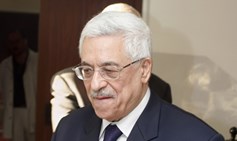
The Palestinian Authority and the International Criminal Court
Written By: Prof. Amichai Cohen, Adv. Tal Mimran
A discussion of the Palestinian Authority's declarations to the International Criminal Court (ICC), the changes that influenced the ICC prosecutor's decision to accept the PA's second declaration, and the conditions that must be fulfilled in order for the ICC to apply its jurisdiction to IDF actions or to the settlement enterprise.
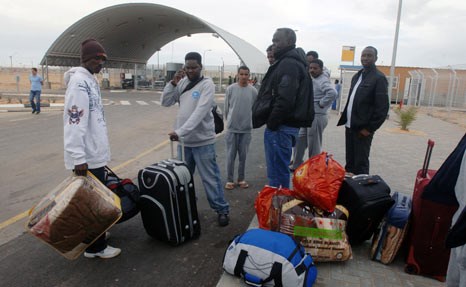
Detention of African Asylum Seekers in Israel: Welcome to Round Three
Written By: Prof. Reuven (Ruvi) Ziegler
On December 8, 2014, just before the Knesset dissolved itself to prepare for early elections, it enacted the Law for Prevention of Infiltration and Ensuring the Departure of Infiltrators from Israel. IDI's Dr. Reuven (Ruvi) Ziegler reviews this development.

Democracy: The Key Election Issue
Written By: Prof. Mordechai Kremnitzer
In an op-ed in Maariv, IDI Vice President Prof. Mordechai Kremnitzer calls for an election campaign that focuses not only on foreign policy and Israel's social gap, but on the nature of Israeli identity and the value of Israeli democracy itself.

Israeli Democracy Day: Yitzhak Rabin's Legacy for the Future
Written By: Prof. Yedidia Z. Stern
On the 19th anniversary of the assassination of Yitzhak Rabin, Prof. Yedidia Stern asserts that if the annual memorial day for the late prime minister were to be observed as Israeli Democracy Day, Rabin's legacy for the future would be even greater.

Adviser or Prosecutor? Israel's Attorney General Can't be Both
Written By: Prof. Yedidia Z. Stern
IDI Vice President Yedidia Stern asserts that there is a conflict of interest between the Attorney General’s two functions—as State Attorney and State Prosecutor—and the office must be split in two.

Transparency in Local Authority Budgets
Written By: Dr. Tehilla Shwartz Altshuler
Dr. Tehilla Shwartz Altshuler discusses the challenges to transparency in the budgets of Israel's local authorities, including the need to make budgets accessible, to enable searches within budgets, and to facilitate comparisons between the budgets of different authorities.
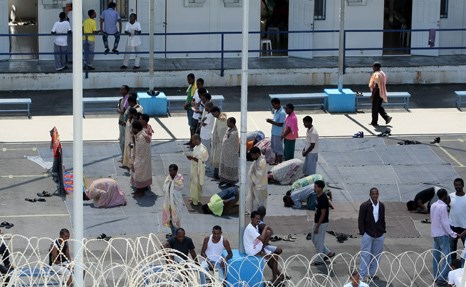
Second Strike and You Are (Finally) Out? The Quashing of the Prevention of Infiltration Law (Amendment No. 4)
Written By: Prof. Reuven (Ruvi) Ziegler
IDI Researcher Dr. Reuven (Ruvi) Ziegler presents a brief overview of the Israeli High Court of Justice's decision to strike down Amendment No. 4 of the Prevention of Infiltration Law, and explores several themes that may be of comparative constitutional interest.
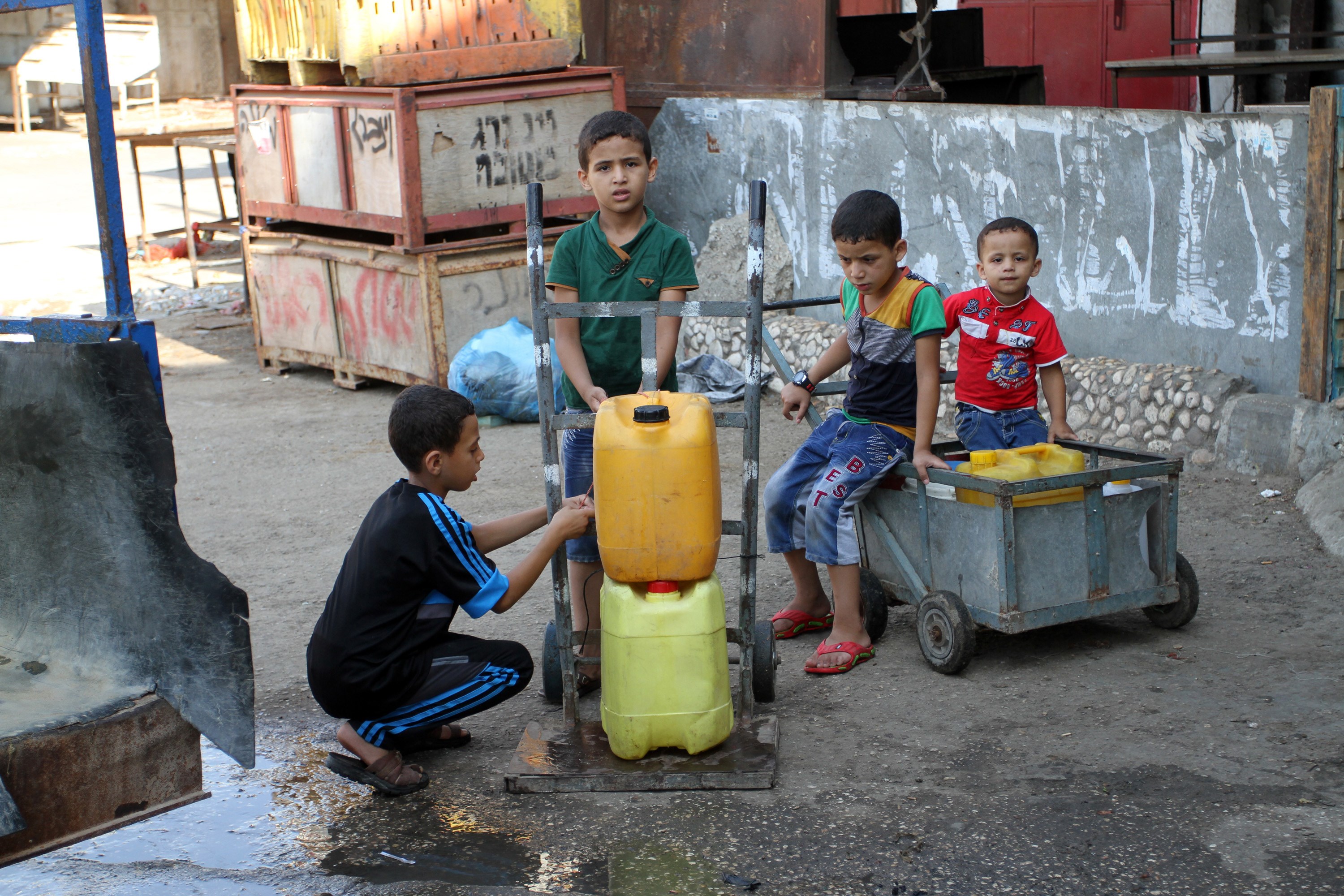
The Admissions Committees Ruling: A Lack of Ripeness or Refusal to Decide?
Written By: Dr. Amir Fuchs
Dr. Amir Fuchs discusses the Israeli High Court of Justice's decision to uphold the "Admissions Committees Law," which allows small communities to reject applicants due to a lack of social suitability.

ISIS: Is the Islamic State Really a State?
Written By: Prof. Yuval Shany, Prof. Amichai Cohen, Adv. Tal Mimran
What criteria must the caliphate of the Islamic State meet in order to be considered a State under international law? This article presents an analysis of this question by IDI experts on terrorism and democracy.

Investigating Allegations of Violations of the Laws of War by the IDF during Operation Protective Edge: The Alternatives Available to Israel
Written By: Prof. Yuval Shany, Prof. Amichai Cohen
How should suspected violations of the international laws of war be investigated? As Operation Protective Edge winds down, Prof. Yuval Shany and Prof. Amichai Cohen discuss the options of an internal investigation by the IDF, an international investigation, and an Israeli commission of inquiry.

A Red Alert for Israeli Democracy
Written By: Yohanan Plesner
In the midst of Operation Protective Edge, IDI President Yohanan Plesner warns of the dangers of racism, incitement, and stifling of free speech and asserts that it is essential to internalize a substantive democratic culture.
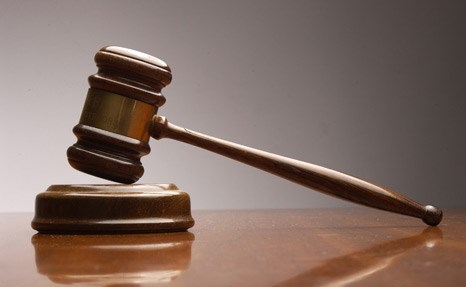
Operation Protective Edge and International Law
Written By: Yohanan Plesner , Prof. Mordechai Kremnitzer, Prof. Amichai Cohen, Adv. Eli Bahar
As Operation Protective Edge enters its second week, IDI experts outline the legal basic concepts involved in asymmetrical warfare and the boundaries of permissible action according to standard interpretations of existing international law.

The "Anti-Pardon" Bill: Laws are not a Substitute for a Backbone
Written By: Dr. Amir Fuchs
In an article in <em>The Times of Israel</em>, Attorney Amir Fuchs argues that legislation that would give judges the authority to sentence murderers to life in prison with no possibility of pardon is misguided and will not prevent terrorists from being released in future prisoner exchanges.

Thoughts on the Use of a Gag Order Following the Kidnapping
Written By: Dr. Tehilla Shwartz Altshuler
As Israel prays for the safe return of Gilad Shaar, Naftali Fraenkel, and Eyal Yifrach, Dr. Tehilla Shwartz Altshuler, head of IDI's Media Reform project, shares thoughts on the use of gag orders and military censorship in the digital age.
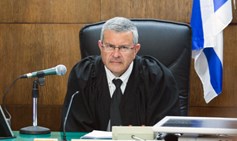
The Holyland Sentencing and the Fight against Government Corruption
Written By: Prof. Mordechai Kremnitzer
In an op-ed in <em>Haaretz</em> published after Ehud Olmert was sentenced to six years in prison, Prof. Mordechai Kremnitzer explores the implications of the Holyland case for the battle against corruption in Israel.

The Presidency: The “Additional Soul” of Israeli Democracy
Written By: Reuven Rivlin
Former Speaker of the Knesset MK Reuven (Ruby) Rivlin shares his views on the importance of the institution of the Israeli presidency, as part of an exclusive IDI series of articles by the presidential candidates of 2014.

The Holyland Sentencing: A Faithful City?
Written By: Prof. Yedidia Z. Stern
In an article in <em>Makor Rishon</em>, Prof. Yedidia Stern describes his feelings of sadness, pride, apprehension, and hope upon the sentencing of Ehud Olmert to prison for his role in the Holyland affair.
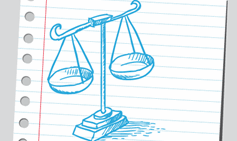
Basic Law: Israel as the Nation State of the Jewish People – A Danger to the Zionist Enterprise
Written By: Dr. Amir Fuchs, Prof. Mordechai Kremnitzer
In an article in the Hebrew weekly <em>Makor Rishon</em>, Prof. Mordechai Kremnitzer and Attorney Amir Fuchs argue against the current initiative to pass Basic Law: Israel as the Nation State of the Jewish People, which they see as divisive and problematic.

Price Tag Attacks: Racist Crimes
Written By: Dr. Amir Fuchs
In an article in <em>Haaretz</em>, Attorney Amir Fuchs stresses the need to wage a genuine war against racism, in order to preserve the values of Zionism and safeguard the Jewish and democratic state.
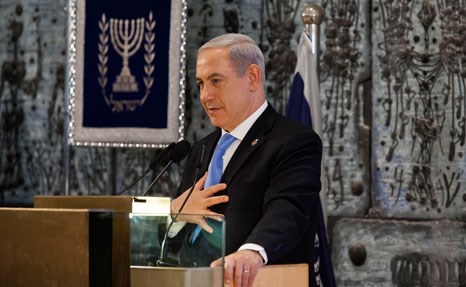
Abolish the Presidency? Certainly Not This Way
Written By: Prof. Ofer Kenig
Dr. Ofer Kenig responds to the initiative to abolish the presidency and emphasizes that such decisions require due consideration and cannot be taken as part of a capricious move that tramples on the democratic rules of the game.

The Leading Candidate for President: "I Don't Know"
Written By: Mr. Chanan Cohen
Two months before the elections for president of Israel, who does the Israeli public see as the most suitable candidate for the job? Find out in this mini-survey from IDI's Guttman Center.

The Presidency in Israel as a Unique Challenge
Written By: Dan Shechtman
An article by Nobel Prize laureate Prof. Dan Shechtman, which was written as part of an IDI project in which the candidates for President of Israel share their views on the presidency and discuss what they would bring to the job.

A Socially-Oriented President
Written By: Meir Sheetrit
MK Meir Sheetrit presents his views on the institution of the Israeli president and describes what he would bring to the job, in the first of a series of articles by the presidential candidates of 2014.

Nothing is Known Yet: Public Opinion on the Israeli Presidential Race
Written By: Mr. Chanan Cohen
Although the presidential race is heating up, the public does not seem to be particularly interested in it. What do Israeli citizens know about the race? Who is their candidate of choice? Find out in this mini-survey by the Guttman Center for Surveys.
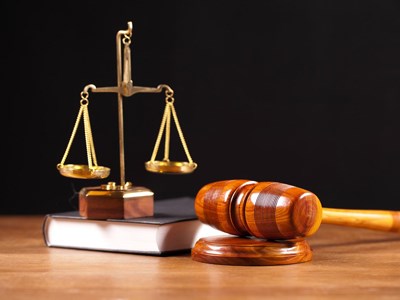
Only a Constitution will Ensure Good Governance in Israel
Written By: Dr. Amir Fuchs
IDI researcher Attorney Amir Fuchs asserts that the only way for Israel to ensure good governance is by adopting a constitution.
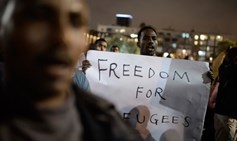
The Prevention of Infiltration Act in the Supreme Court: Round Two
Written By: Prof. Reuven (Ruvi) Ziegler
IDI researcher Dr. Reuven (Ruvi) Ziegler explains why he believes the Supreme Court should overturn Amendment No. 4 of the Prevention of Infiltration Act just as it invalidated its predecessor.
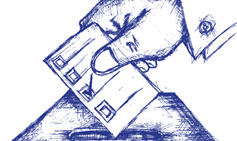
Basic Law: Referendum—Changing the Rules of the Game of Israeli Democracy
Written By: Dr. Dana Blander
Dr. Dana Blander draws on the findings of Israeli public opinion polls and explores some of the ramifications of the new Basic Law: Referendum, a law that establishes a system in which every citizen is entitled to participate in historic decisions on withdrawal from territory.
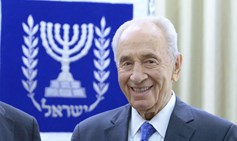
Israeli Public Opinion on the President and the Presidential Elections
Written By: Ella Heller
As the elections for the tenth President of Israel near, IDI researcher Ella Heller of the Guttman Center for Surveys presents an analysis of Israeli public opinion regarding the desired professional background for the next president of Israel, and how the elections should be conducted.

On Leadership and Responsibility: The Lessons of the Purim Story
Written By: Shira Ruderman, Benjamin (Benny) Lau
Rabbi Dr. Benny Lau and Shira Ruderman, Israel Director of the Ruderman Family Foundation, share thoughts on the Purim story, leadership, responsibility, and repair of the world.

The Electoral Threshold: Why the Rush?
Written By: Prof. Ofer Kenig
In an op-ed in the Jerusalem Post, Dr. Ofer Kenig warns that while there is nothing wrong with a moderate increase in Israel's electoral threshold, increasing it from 2% to 3.25% in a single step is problematic.

The IDF and the Ultra-Orthodox
Written By: Haim Zicherman
As the Knesset prepares to vote on the "Draft Law" designed to regulate the service of ultra-Orthodox men in the Israel Defense Forces, Dr. Haim Zicherman surveys the current situation within Israel's Haredi community.

Building a Shared Society: On the Priorities of the Israel Police
Written By: Prof. Mordechai Kremnitzer
Prof. Mordechai Kremnitzer explains the importance of the fifth meeting of IDI's Police and Society Forum, which was dedicated to the question of partnership and transparency in the relationship between the Israel Police and Arab society.

The Case of Jonathan Pollard: A Legal Analysis
Written By: Prof. Mordechai Kremnitzer
In an op-ed in The Jerusalem Post, IDI Vice President Prof. Mordechai Kremnitzer analyzes Jonathan Pollard's life sentence and calls on President Obama to put an end to Pollard's incarceration In the name of the shared commitment to justice.

Does Israel Need a Police Prosecution Department?
Written By: Prof. Mordechai Kremnitzer, Dr. Guy Lurie
In an op-ed in <em>Haaretz</em>, IDI Vice President Prof. Mordechai Kremnitzer and Dr. Guy Lurie call for reform that will abolish the Police Prosecution Department, leaving the Police to investigate and the Public Prosecution to bring criminal charges.

At the Starting Line: The Israeli Presidential Race Begins
Written By: Prof. Ofer Kenig
Is Prof. Dan Shechtman, who formally announced his candidacy for the 2014 presidential race in Israel, any different than traditional candidates for the position? IDI researcher Dr. Ofer Kenig surveys the characteristics of Israel's past presidents and presidential candidates.

Do You Have to Earn Dignity?
Written By: Prof. Tamar Hermann
Is dignity something that must be earned? Prof. Tamar Hermann, Head of IDI's Guttman Center for Surveys, explores this question, as IDI's Israel Speaks project assembles 200 citizens to begin drafting a Declaration of Human Dignity.

A Truly Supreme Court
Written By: Prof. Mordechai Kremnitzer, Dr. Guy Lurie
In an op-ed in TheMarker, IDI Vice President Prof. Mordechai Kremnitzer and Dr. Guy Lurie discuss the benefits of establishing a new appellate court between the district courts and the Supreme Court.

Releasing Terrorists: An Insult to the Criminal Justice System
Written By: Dr. Amir Fuchs
In an article in <em>Haaretz</em>, attorney Amir Fuchs explains why he believes the release of convicted terrorists as part of prisoner release deals or as part of diplomatic negotiations degrades Israel's criminal justice system.

International Disabilities Day 2013: Human Rights and Judaism in Action
Written By: Benjamin (Benny) Lau
In honor of International Day for Persons with Disabilities, Rabbi Dr. Benjamin (Benny) Lau updates us on IDI's efforts on behalf of people with disabilities and reveals that people with guide dogs are now allowed to access the Western Wall.

The Referendum Law as a Metaphor
Written By: Dr. Arye Carmon
In an op-ed originally published in Haaretz, IDI Former President and Founder Dr. Arye Carmon explains his reservations about the "Referendum Bill" and warns that the concept of referendum is antithetical to the principles of democracy.

Organized Criminals Today, Everyone Else Tomorrow
Written By: Lina Saba
In an op-ed in Haaretz, Attorney Lina Saba-Habesch warns that extending the use of administrative detention to apply to suspects in cases of organized crime could lead to the use of this extreme method, or of other extreme methods, in combating other forms of crime.
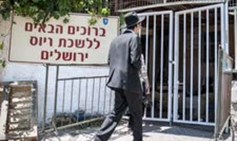
The Haredi Draft: Equality Now?!
Written By: Prof. Yedidia Z. Stern
On November 21 2013, Prof. Yedidia Z. Stern appeared before the Shaked Committee and argued that criminal sanctions are not recommended for reaching conscription goals. In an op-ed in Makor Rishon, he explains why.

Using Administrative Detention to Combat Organized Crime
Written By: Aviad Ben Yehuda
Aviad Ben Yehuda discusses the problematic nature of the proposal to extend the use of administrative detention in Israel from the war on terror to the war on organized crime.

Prof. Mordechai Kremnitzer Speaks Out on Using Administrative Detention in Cases of Organized Crime
Written By: Prof. Mordechai Kremnitzer
IDI Vice President of Research Prof. Mordechai Kremnitzer responds to the possibility that the police will use administrative detention to combat organized crime, much in the manner as it is used to combat terrorism.
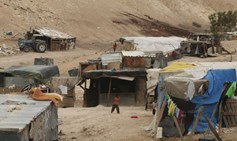
Regulating Bedouin Settlement: A Disengagement Plan for the Negev
Written By: Ronit Levine-Schnur
Ronit Levine-Schnur analyzes the Bill to Regulate Bedouin Settlement in the Negev 5773–2013, warns that it seems to be motivated by an exaggerated fear of a Bedouin takeover of the Negev, and offers an alternative approach.

On the Need for Civil Unions in Israel
Written By: Benjamin (Benny) Lau
Rabbi Dr. Benjamin (Benny) Lau expresses support for the proposed civil union bill, which would allow couples who do not want to marry in a religious service to form a legally recognized union and be eligible for the benefits and responsibilities associated with marriage.

Separating the Prosecution from the Police
Written By: Prof. Mordechai Kremnitzer, Dr. Guy Lurie
Most criminal cases in Israel are prosecuted by the Israel Police rather than by the State Prosecutor. Prof. Mordechai Kremnitzer and Dr. Guy Lurie call for a division that would make the Police responsible for investigations and the State Prosecutor responsible for indictments and trials.

The Contributors to the State Bill: Contributing to the Jewish-Arab Divide
Written By: Dr. Talya Steiner, Prof. Mordechai Kremnitzer
Prof. Mordechai Kremnitzer and Att. Talya Steiner warn that the veteran's benefit bill, which is intended to extend benefits to those who have contributed to the State, discriminates against Israel's Arab citizens, who are exempt from military service in Israel.

On the Decline in Voter Participation in Municipal Elections in Israel
Written By: Dr. Assaf Shapira
Why is voter participation in local elections in Israel so low? Assaf Shapira explains the reasons behind this phenomenon, discusses its implications, and offers possible remedies.

Remembering Rabin: Attitudes toward Political Violence in Israel 2013
Written By: IDI Website Staff
How do Israelis feel about political violence today, 18 years after the assassination of Prime Minister Yitzhak Rabin? As Israel commemorates Rabin Memorial Day, consider the following findings of the 2013 Israeli Democracy Index.

The Israeli Democracy Index: A Periodic Check-Up
Written By: Prof. Tamar Hermann
Prof. Tamar Hermann, head of IDI's Guttman Center for Surveys, discusses the findings of the 2013 Israeli Democracy Index, which was submitted to President Shimon Peres on October 6, 2013.

A Professional Assessment of the Governance Bills
Written By: Prof. Gideon Rahat
A professional assessment of proposed changes to Basic Law: The Government and the Election Bill, which was submitted by Prof. Gideon Rahat to MK David Rotem, Chairman of the Knesset Constitution, Law and Justice Committee.

The Israeli Economy: Has the Melting Pot Succeeded?
Written By: Momi Dahan
A study conducted by IDI Senior Fellow Prof. Momi Dahan that reveals that there has been a continuous narrowing of income gaps between Israelis of European-American origins and of Asian-African origins since the 1990s.

Quashing Legislation Mandating Lengthy Detention of Asylum-Seekers
Written By: Prof. Reuven (Ruvi) Ziegler
Dr. Reuven (Ruvi) Ziegler shares observations on the decision of the Israeli Supreme Court that an amendment of the Prevention of Infiltration Law that mandated lengthy detention of asylum seekers is unconstitutional.

Life Under Two Suns: When Human Rights and Jewish Values Collide
Written By: Prof. Yedidia Z. Stern, Jay Ruderman
The first in a series of articles by researchers from IDI's Judaism and democracy projects and Human Rights and Judaism project on the complementary but tense relations between Judaism and democratic values.

Asylum Seekers in Israel: A Snapshot
Written By: Prof. Reuven (Ruvi) Ziegler
On the occasion of International Migrants Day and an IDI roundtable on Israeli immigration policy, IDI researcher Adv. Reuven (Ruvi) Ziegler provides an overview of the treatment of African asylum seekers who have crossed into Israel via its southern border.
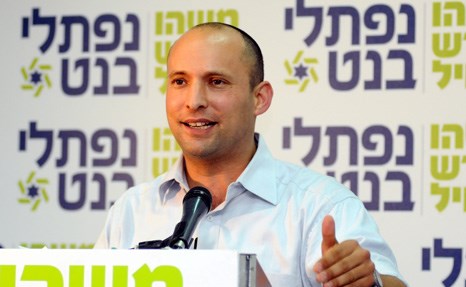
Habayit Hayehudi and Refusal of Orders: The Real Question
Written By: Prof. Yedidia Z. Stern
Naftali Bennett's statement that he would refuse orders if commanded to evacuate settlements raises questions about the type of insubordination that he and his party condone. In an op-ed in Yedioth Ahronoth, Prof. Yedidia Stern calls on Habayit Hayehudi to clarify its position on the matter.

Are Convicts Fit for Political Office?
Written By: Doron Navot, Prof. Mordechai Kremnitzer
IDI Vice President Mordechai Kremnitzer and Doron Navot, author of Political Corruption in Israel, discuss whether politicians convicted of crimes involving moral turpitude should be allowed to return to the Knesset.
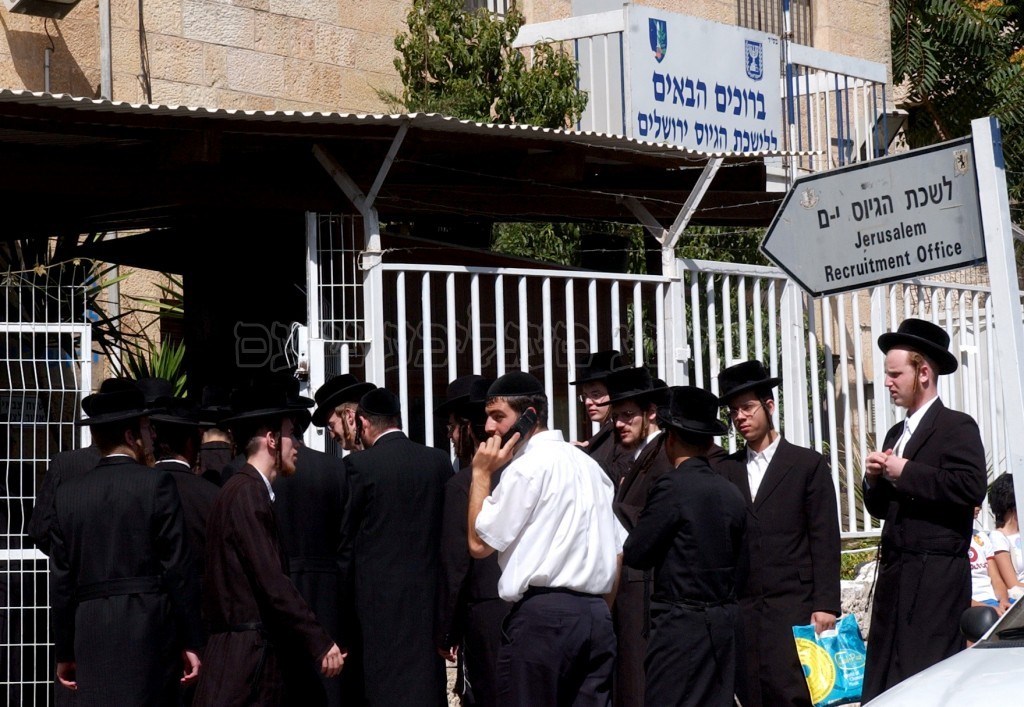
Israeli Public Opinion on Drafting Haredi Yeshiva Students
Written By: Dror Walter, Chanan Cohen
An analysis of Israeli public opinion on the issue of drafting ultra-Orthodox yeshiva students, as revealed in polls conducted by IDI's Guttman Center for Surveys from 1986 through 2009.

Trapped between the Fences
Written By: Prof. Reuven (Ruvi) Ziegler
IDI researcher Attorney Reuven (Ruvi) Ziegler argues that the response of the Israeli government to the plight of 20 Eritrean asylum seekers trapped between the fences of the Israeli-Egyptian border tests Israel's adherence to rulings of its own Supreme Court.

The Tal Law: Judicial Responsibility at its Best
Written By: Prof. Mordechai Kremnitzer
Prof. Mordechai Kremnitzer presents a contrasting view to Prof. Yedidia Stern's assertion that the Israeli Supreme Court's ruling on the exemption of ultra-Orthodox men from military service in Israel is "<a href="http://en.idi.org.il/analysis/articles/judicial-activism-at-its-height">Judicial Activism at its Height</a>."
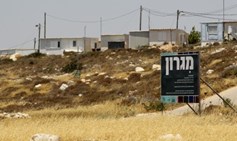
Appropriate and Inappropriate Evacuation
Written By: Yair Sheleg
IDI Senior Researcher Yair Sheleg shares his thoughts on the differences between the evacuation of Yamit and the Sinai Peninsula in the past, and the upcoming evacuations of Migron and the Ulpana neighborhood of Beit El.

Make the Ultra-Orthodox Serve
Written By: Yair Sheleg
IDI Vice President of Research Prof. Yedidia Stern sets the controversy over mass transportation on Shabbat and holidays in Israel in a broader context, and distinguished between the need for an Israeli-Jewish Shabbat (Sabbath) rather than a religious Shabbat.

The New Amendment to the ‘Prevention of Infiltration’ Act: Defining Asylum-Seekers as Criminals
Written By: Prof. Reuven (Ruvi) Ziegler
On January 10, 2012 an amendment to the Prevention of Infiltration Act passed its second and third reading in the Knesset. In passing this act, the government—and the Knesset—chose to walk down a path that is incompatible with the protection of human freedom that is embedded in Israeli constitutional law and that is incompatible with Israel’s obligations under international refugee conventions. Below is a condensed version of an article on this matter that was written by Adv. Reuven (Ruvi) Ziegler for the IDI Hebrew website.

Choosing between the Law and Torah
Written By: Jonah Mandel
Is the tension over the arrests of Rabbis Dov Lior and Ya’acov Yosef a precursor to an inevitable collision between Halakha and the judiciary? IDI Vice President of Research Prof. Yedidia Stern shared his views on this question with Jonah Mandel of The Jerusalem Post.

A Matter of Definition: On ‘Infiltrators’ and ‘Asylum Seekers’ in Israel
Written By: Prof. Reuven (Ruvi) Ziegler
In this article, IDI Researcher Adv. Reuven (Ruvi) Ziegler surveys Israel's regulations regarding refugees and asylum seekers and points to three areas—eligibility for asylum, the rights of asylum seekers, and detention—in which they are incompatible with the UN refugee convention.

A Boycott on Both Your Houses
Written By: Prof. Yedidia Z. Stern
Is the boycott of the town of Ariel, which is located over the Green Line, by Israeli performing artists legitimate? In this op-ed from Yedioth Ahronoth, IDI Vice President Yedidia Z. Stern warns that this type of organized opposition to democratic decisions endangers the delicate fabric of Israeli life.

Dismantling Sectarian Cities of Refuge
Written By: Prof. Yedidia Z. Stern
In an op-ed in Yedioth Aharonoth, IDI Vice President of Research Prof. Yedidia Z. Stern calls on the leaders of each "tribe"—Russian, ultra-Orthodox, settler, and upper class— to take action to eradicate the negative behavior stereotypically associated with their camp.

In Israel, Rescuing Government from Itself
Written By: Gary Rosenblatt
Dr. Arye Carmon, co-founder and president of the Israel Democracy Institute (IDI), discusses how the lack of a constitution is an internal existential threat to Israel. Dr. Carmon's approach is inclusive and integrative, including such remedies as one-ballot elections and a Constitution by Consensus.

A Privately Run Prison: Worthy Addition to Israel's Correction System
Written By: Shmuel Hershkovitz
In this article, the former Director-General of Israel's Ministry of Public Security debunks the case against the proposed privatization of prisons in Israel. In his opinion, operating a prison under private management is an experiment that can actually improve prison conditions and support prisoners' rights.

Privatization of Prisons: The Path to a Corporate Regime
Written By: Effi Michaeli
Effi Michaeli, warns against the full privatization of prisons and argues that such a decision represents a breach of boundaries that can transform Israel into a corporate regime.

Conscription of Haredi Yeshiva Students to the IDF and the Emerging Constitutional Crisis
Written By: Dr. Nadav Dagan, Prof. Amichai Cohen, Dr. Amir Fuchs
The Supreme Court is currently conducting a hearing that could signal a constitutional crisis—a contempt-of-court motion filed in the case of the Movement for Quality Government in Israel v. Minister of Defense (5819/24), which argues that the government has not complied with the Court’s ruling of November 19, 2025 requiring it to formulate an effective enforcement plan for ultra-Orthodox (Haredi) conscription.
This explainer reviews the background to the Court’s ruling, and considers whether Israel merely faces the risk of a constitutional crisis, or whether such a crisis is already here.

The Levin-Sa’ar Plan: Don’t Slam the Door on Someone Looking for a Way Out of Their Own Mess
Written By: Prof. Benjamin Porat
The Levin-Saar plan abandons key elements of his earlier judicial overhaul, proposing changes to judicial selection and Basic Laws. While flawed, it offers a potential starting point for bipartisan negotiations to resolve Israel’s constitutional crisis.

Immunity Flowchart
Prime Minister Benjamin Netanyahu has asked the Knesset for immunity from prosecution. What happens next? IDI experts lay out the next steps.

Israel's Alt-Right is Now Mainstream - Are Lawmakers Doing Enough to Stop It?
Written By: Yardena Schwartz
27 years after Kahane’s murder, Jewish extremists praise the rabbi, calling him a righteous prophet whose politics were ahead of his time. Like Kahane, Gopstein’s ultimate dream is an Israel that operates according to Jewish law, or Halacha, where the only Arabs who live there are those loyal to a Jewish theocracy. “At this rate,” he says of Palestinian citizens of Israel, “it’s either us or them”

How Israel’s Leadership Betrayed Democracy
Written By: Prof. Amichai Cohen, Dr. Idit Shafran Gittleman
Despite the verdict, the real story in the Azaria affair is the moral, not the legal, issue, and this debate is alive and well.
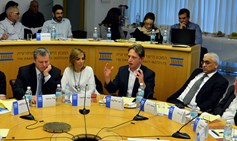
Civil Service Commissioner: For Country or Government?
Written By: Motty Shapira
The civil service commissioner holds an important public position, and should not be relegated to serving as a rubber stamp for the government.
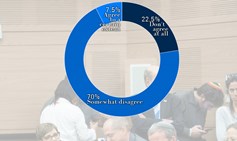
What Do Parliamentary Aides Think of the Work of Members Of Knesset?
Researchers surveyed aides in 40 Knesset offices. Of those, 92% of aides says they think MKs do not come prepared for Knesset committee meetings and that the Knesset is not succeeding in properly supervising the government (95%).

Pardon Requests in Cases Brought Before Israeli Military Courts: How Do They Work?
Written By: Colonel (Res.) Dr. Liron A. Libman
Even before the conclusion of the Elor Azaria trial, there were calls for the 'Hebron Shooter' to be pardoned. Under such circumstances, what does a pardon entail and how can an IDF soldier who had been sentenced in a military court of law be granted one?
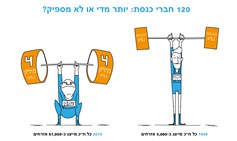
Happy Birthday, Knesset!
Written By: Prof. Ofer Kenig
As the Knesset, Israel’s legislature, marks its birthday, IDI takes the opportunity to consider two aspects about it: its members’ social composition and its relative size.
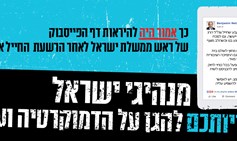
The Post that was Never Written
"The court must be allowed to pursue the legal process, without intimidation or attempts to undermine its independence."




